|

HOME |
ABOUT | INDEX |
NEWS |
FACEBOOK |
CONTACT
LEGAL
Law | Courts | Legislation | Protection | Rights | Justice
Marriage Equality is
Safe for Now
Supreme
Court declines challenge to landmark 2015 same-sex marriage ruling
In November
2025, the US Supreme Court rejected a call to overturn its landmark precedent
recognizing a constitutional right to same-sex marriage, tossing aside an appeal
that had roiled LGBTQ advocates who feared the conservative court might be ready
to revisit the decade-old decision.
Instead, the
court denied an appeal from Kim Davis, the former Kentucky county clerk who now
faces hundreds of thousands of dollars in damages and legal fees for refusing to
issue marriage licenses after the court’s decision in Obergefell v. Hodges
allowed same-sex couples to marry.
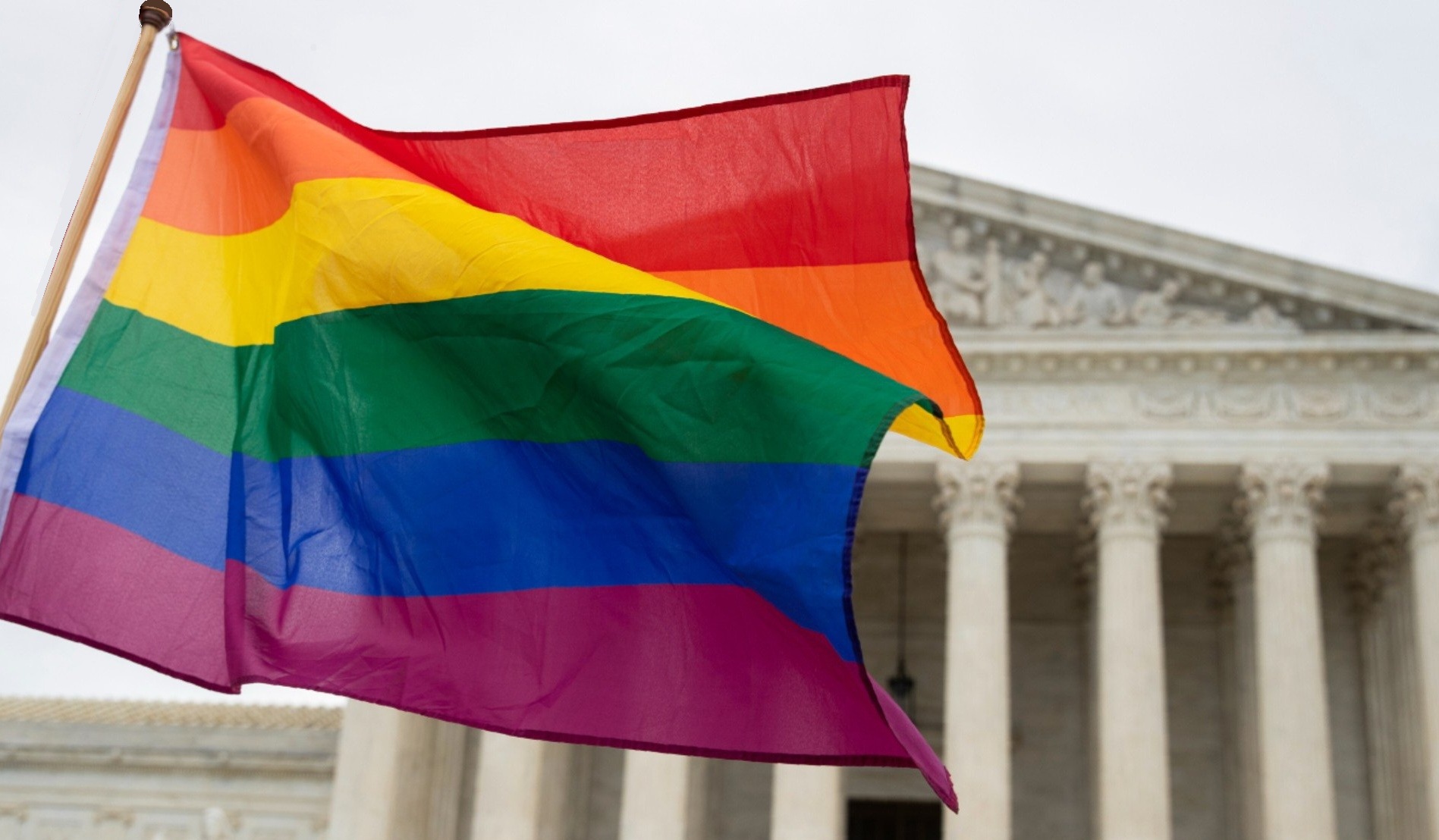
Advocate: Supreme Court Denies Hearing in Kim Davis’s Marriage
Equality Challenge
CNN: Supreme
Court Declines to Revisit Landmark Same-Sex Marriage Precedent
Out Mag: Supreme Court Declines to Revisit Same-Sex Marriage
Decision
AP News:
Supreme Court Rejects Call to Overturn its Decision Legalizing Same-Sex Marriage
Nationwide
Justice Anthony Kennedy, the key
swing vote who authored the Obergefell decision, retired in 2018 and was
replaced by conservative Justice Brett Kavanaugh. Justice Ruth Bader Ginsburg, a
liberal icon who was also in the Obergefell majority, died in 2020 and was
succeeded by Justice Amy Coney Barrett, a conservative.
Three current justices – Chief Justice John Roberts and Justices Clarence Thomas
and Samuel Alito – were in dissent in the Obergefell decision.
Back in 2015, Kennedy’s opinion spoke eloquently of the most fundamental values
of family, love and liberty: “No union is more profound than marriage, for it
embodies the highest ideals of love, fidelity, devotion, sacrifice and family.
In forming a marital union, two people become something greater than they once
were.”
The Obergefell decision prompted a massive celebration that began outside the
Supreme Court on the day it was decided in June 2015. That evening, the White
House was lit in rainbow colors. Many same-sex couples rushed into courthouses
to wed. Nearly 600,000 same-sex couples have since married.
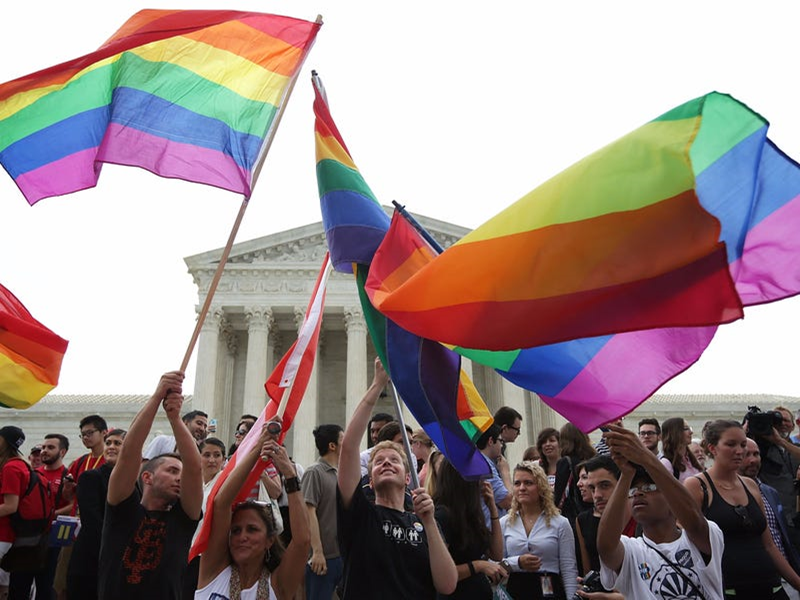
Pink News: US Supreme Court Rejects Bid to Overturn Same-Sex Marriage
ABC News: Supreme Court Denies Kim Davis' Petition to Revisit Same-Sex Marriage
Ruling
USA Today:
Supreme Court Won't Revisit Landmark Decision Legalizing Same-Sex Marriage
Nationwide
Advocate: Jim Obergefell Celebrates Supreme Court’s Rejection of Kim Davis’s
Marriage Equality Challenge
But some conservatives viewed the outcome as a betrayal and predicted future
conflicts with religion. Davis, who at the time was the clerk of Rowan County in
Kentucky, cited her religious objection to same-sex marriage as justifying her
decision to withhold marriage licenses to all couples. She was sued by multiple
couples in the county, and a jury ordered her to pay $360,000 in damages and
legal fees. After a federal court found she had violated a court order to issue
licenses, Davis was also thrown in jail for several days.
While virtually all of the focus on Davis’ appeal was aimed at her request to
overturn Obergefell, the bulk of case actually dealt with a series of more
technical questions. In appealing the damages verdict against her, the former
clerk argued that the First Amendment’s religious protections should shield her
from legal liability, particularly since she is no longer a public official. The
6th US Circuit Court of Appeals rejected that argument.
The Supreme Court’s decision to decline to hear the Davis appeal sets no
precedent. If another appeal arrives threatening to undermine or overturn
Obergefell, the court will review that appeal from scratch.
[Source: John Fritze, CNN, Nov
2025]
Supreme Court Rejects Call to
Overturn its Decision Legalizing
Same-Sex Marriage Nationwide
Lambda Legal: Current Challenges
for LGBTQ Community
SPLC: Why Gender
Affirming Care is Necessary
After 10 Years Of Marriage
Equality, Queer Couples Are
Worried
Texas Finally Votes to Repeal
Law Banning Homosexual Conduct
Governor Signs Bill to Stop
Schools From Outing LGBTQ
Students to Their Parents
Message From Lambda Legal
ACLU: Roadmap for Four More
Years of Trump
LGBTQ Supreme Court Cases to
Watch This Term
GOP Governor Signs Bill that
Could legalize LGBTQ
Discrimination
Georgia Gov Signs Religious
Liberty Law: LGBTQ Advocates
Worry it'll Allow Discrimination
Legal Updates: LGBTQ Rights
Under the Trump Administration
Lawmakers in 9
States Propose Measures to
Undermine Same-Sex Marriage
Rights
LGBTQ Legal Protection
"We sued the Trump
administration 14 times during
his first presidency and won 12
of those cases. That's an 86
percent win rate. We've been
preparing for his second
presidency and we are ready to
fight."
-Kevin Jennings, CEO of Lambda
Legal
It is important to be informed about the laws and legal
protection regarding LGBTQ people. Fortunately, there
are lawyers and legal organizations ready to provide
help. Legal groups like Lambda Legal, Human Rights
Campaign (HRC), Southern Poverty Law Center (SPLC),
American Civil Liberties Union (ACLU), Human Rights
Watch (HRW), and the LGBTQ Bar Association provide advocacy,
protection, and defense for LGBTQ people.

Supreme Court Rejects Call to
Overturn its Decision Legalizing
Same-Sex Marriage Nationwide
Lambda Legal: Current Challenges
for LGBTQ Community
SPLC: Why Gender
Affirming Care is Necessary
After 10 Years Of Marriage
Equality, Queer Couples Are
Worried
Texas Finally Votes to Repeal
Law Banning Homosexual Conduct
Governor Signs Bill to Stop
Schools From Outing LGBTQ
Students to Their Parents
Message From Lambda Legal
ACLU: Roadmap for Four More
Years of Trump
LGBTQ Supreme Court Cases to
Watch This Term
GOP Governor Signs Bill that
Could legalize LGBTQ
Discrimination
Georgia Gov Signs Religious
Liberty Law: LGBTQ Advocates
Worry it'll Allow Discrimination
Legal Updates: LGBTQ Rights
Under the Trump Administration
Lawmakers in 9
States Propose Measures to
Undermine Same-Sex Marriage
Rights
Laws affecting lesbian, gay, bisexual, transgender, and
queer people vary greatly state to state and by country
or territory. These laws address everything from legal
recognition of same-sex marriage or other types of
partnerships, to the death penalty as punishment for
same-sex sexual activity or identity.
LGBTQ-related laws include, but are not limited to:
government recognition of same-sex relationships, LGBTQ
adoption, sexual orientation and military service,
immigration equality, anti-discrimination laws, hate
crime laws regarding violence against LGBTQ people,
sodomy laws, anti-lesbianism laws, and higher ages of
consent for same-sex activity.
In 2011, the United Nations passed its first resolution
recognizing LGBTQ rights, and followed up with a report
documenting violations of the rights of LGBTQ people,
including hate crime, criminalization of homosexuality,
and discrimination.
Michigan Republican Lawmaker
Introduces Resolution Asking
Supreme Court to Overturn
Marriage Equality
Idaho Republicans
Pass Resolution Urging Supreme
Court to End Marriage Equality
Gender Identity and Sexuality to
be Protected Under Michigan’s
Hate Crime Law
Lawyers and
Advocacy Groups Advise LGBTQ
Community to Take Precautions
Under Trump’s Executive Order
Idaho Republicans
File Resolution to Repeal
Marriage Equality
Judge Scraps Biden’s Title IX
Rules: Reverses Expansion of
Protections for LGBTQ Students
Year in Review:
What Changed for LGBTQ Rights in
2024
Alabama's
Anti-LGBTQ
Legislation
Alabama House
of
representatives
passes
Don't-Say-Gay,
drag ban, Pride
flag ban,
pronouns ban,
and Ten
Commandments
bills...
Republicans
approved bills,
which included
an expansion of
the state's
"Don't Say Gay"
law to encompass
grades K-12, a
ban on drag
performances in
some public
spaces, an LGBTQ
Pride flag ban
in public
schools, a ban
against school
employees using
students'
preferred names
and pronouns,
and a law
requiring the
Ten Commandments
to be displaced
in all public
education
institutions —
even colleges.
The bills now
head to the
state Senate.
The bill
prohibits
classroom
instruction in
public school
pre-kindergarten
through the
twelfth grade
related to
gender identity
or sexual
orientation; to
prohibit
education
employees from
displaying
certain flags
and insignia in
public preK-12
schools; and to
prohibit
education
employees from
referring to a
student by
pronouns
inconsistent
with the
student's
biological sex.
The "certain
flags" text
refers to
employees being
forbidden from
displaying are
flags "relating
to or
representing
sexual
orientation or
gender identity
in a classroom
of a public
preK-12 school,"
singling out the
LGBTQ Pride
flag.

 
Alabama House
Passes Don't Say
Gay, Drag Ban,
and Ten
Commandments
Bills
Alabama Forces
Universities to
Implement Trans
Bathroom Ban
While Outlawing
DEI
HRC Condemns Ala
Governor for
Signing
Discriminatory
Anti-Transgender
Sports Ban
Ala House Passes
Expansion of
Don't Say Gay
Law for Alabama
Public Schools
Targeted and
Tired:
Anti-LGBTQ
Legislation
Surges, LGBTQ
Alabamians Push
Back
The bill
prohibits public
K-12 schools and
public libraries
from knowingly
presenting or
sponsoring drag
performances in
the presence of
a minor without
the consent of
the minor's
parent or legal
guardian. "Drag
is defined as "a
performance in
which a
performer
exhibits a sex
identity that is
different from
the sex assigned
to the performer
at birth using
clothing,
makeup, or other
physical
markers,"
leaving
uncertainty as
to how it will
impact
transgender
people.
The bill also
requires that
each local board
of education and
the governing
body of each
public
institution of
higher education
to display the
Ten Commandments
and a context
statement in a
common area of
each school
under its
jurisdiction.
The American
Civil Liberties
Union of Alabama
said in a
statement in
response to the
bill's
introduction
that mandating
the Ten
Commandments in
public schools
is
"unconstitutional,
plain and
simple."
[Source: Ryan
Adamczeski,
Advocate
Magazine, April
2025]
After 10 Years
Of Marriage
Equality, Queer
Couples Are
Worried
Texas Finally
Votes to Repeal
Law Banning
Homosexual
Conduct
Governor Signs
Bill to Stop
Schools From
Outing LGBTQ
Students to
Their Parents
Hope in Spite of
Trump
Lesbian
Congresswoman
Becca Balint:
She Wants to
Impeach Trump
Texas Republican
Shows Ignorance
About Intersex
Pete Buttigieg:
Smart Straight
Shooter
Legislation Aimed at LGBTQ Community has
Become More Extreme and Getting Worse Under Trump
Darkness and
Dazzle: Pete
Buttigieg
Eviscerates
Donald Trump’s
Speech
Trump Treasury
Pick Scott
Bessent Could
Become First
Openly LGBTQ
Republican
Cabinet Member
Arienne Childrey
Becomes Ohio's
First
Transgender City
Council Member
History-Making
LGBTQ
Legislators
Sworn in to
119th Congress
Lambda Legal:
Promo
Trump on LGBTQ
Rights
Rolling Back Protections and Criminalizing Gender
Nonconformity
Donald
Trump’s administration initiated a sustained, years-long
effort to erase protections for LGBTQ people. This
included an effort to “define ‘transgender’ out of
existence,” erode protections for transgender students
and workers, and weaken access to gender-affirming
health care that most transgender people already
struggled to access.
While President Joe Biden’s administration reversed much
of the Trump-era abuses, just last month on the campaign
trail, Trump vowed to dismantle a new Biden
administration policy that will offer protections for
transgender students under Title IX, a federal civil
rights law that prohibits sex discrimination in
education.
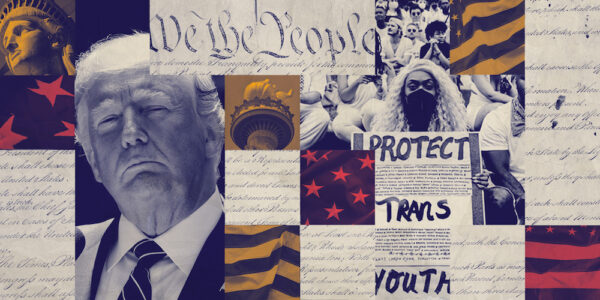
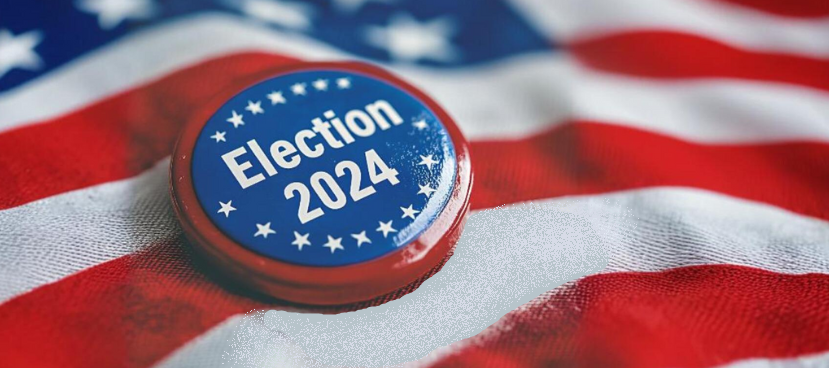
Lambda Legal: Current Challenges for LGBTQ Community
SPLC: Why Gender Affirming Care is
Necessary
Legal Updates: LGBTQ Rights Under the Trump
Administration
Trump on LGBTQ Rights: Rolling Back Protections and
Criminalizing Gender Nonconformity
ACLU: Trump on LGBTQ Rights
Human Rights Watch: Trump Poses More Threats to Rights
of LGBTQ People
Donald Trump’s 10 Worst Attacks on the LGBTQ Community
ACLU: Roadmap for Four More Years of Trump
What Trump’s Re-Election Means for the
LGBTQ Community
LGBTQ Advocates Fear a Second Trump Term
Would Double Down on Restrictions
Lawyers and Advocacy Groups Advise LGBTQ
Community to Take Precautions Under Trump’s Executive
Order
The ACLU is prepared to defend the LGBTQ community,
including transgender individuals, from a second Trump
administration’s anticipated attempts to weaponize
federal law against them.
The Facts: Trump has promised that, if reelected, his
administration will rescind federal policies that
prohibit discrimination on the basis of sexual
orientation and gender identity, and will assert that
federal civil rights laws don’t cover anti-LGBTQ
discrimination. In addition to rolling back existing
protections, a second Trump administration will
proactively mandate discrimination by the federal
government wherever it can. Lastly, and perhaps most
ominously, if Trump returns to the White House, we
expect his administration to use federal law – including
laws meant to safeguard civil rights – as a cudgel to
override critical state-level protections for
transgender students and to force state and local
governments, as well as private organizations, to allow
or even perpetuate discrimination
Why It Matters: A second Trump administration would
strip LGBTQ people of protections against discrimination
in many contexts, including employment, housing,
education, health care, and a range of federal
government programs. The Trump administration’s proposed
policies would ban transgender people from serving
openly in the armed forces and block gender-affirming
medical care for transgender people enrolled in federal
healthcare programs, such as Medicare. The effects of
these cruel – and unconstitutional – discrimination
efforts would be devastating, as thousands of
transgender people would immediately lose access to
needed medical care and the right to live freely without
fear. In essence, a potential second Trump
administration would seek to erase transgender people
from public life entirely by using federal laws –
including obscenity laws – to criminalize gender
nonconformity.
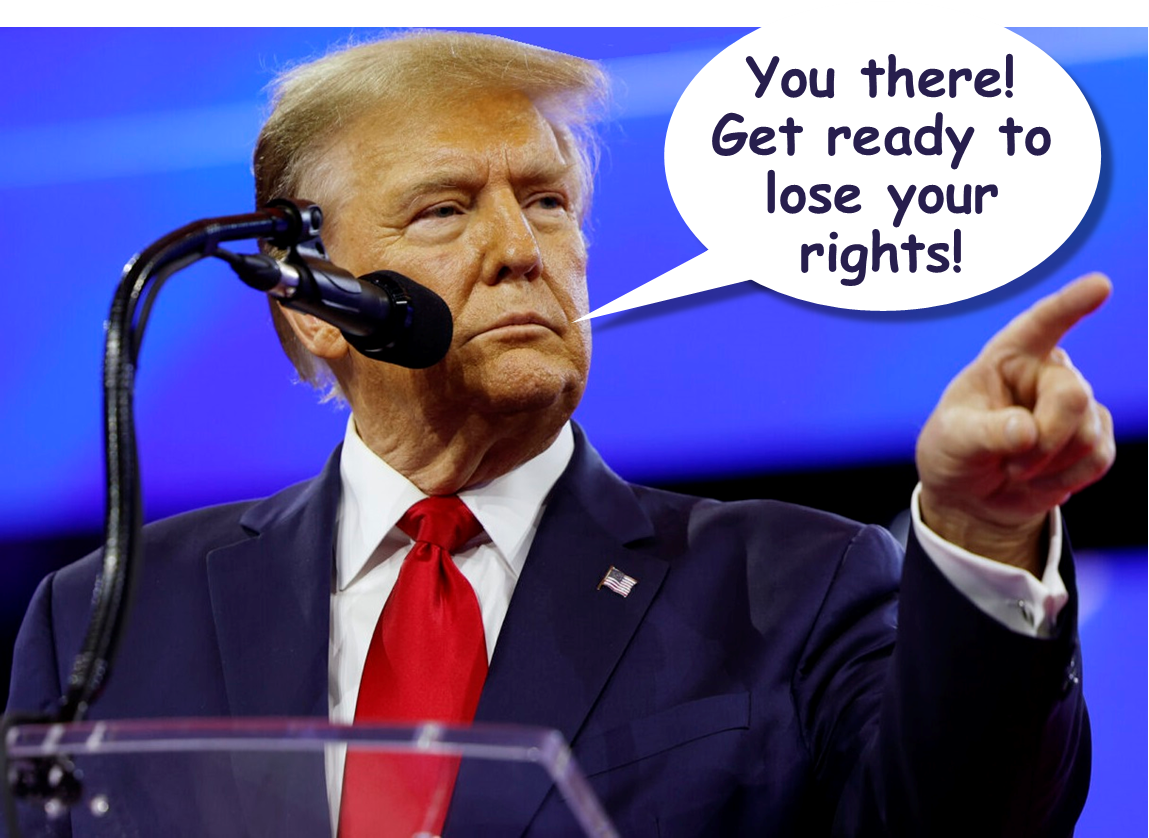
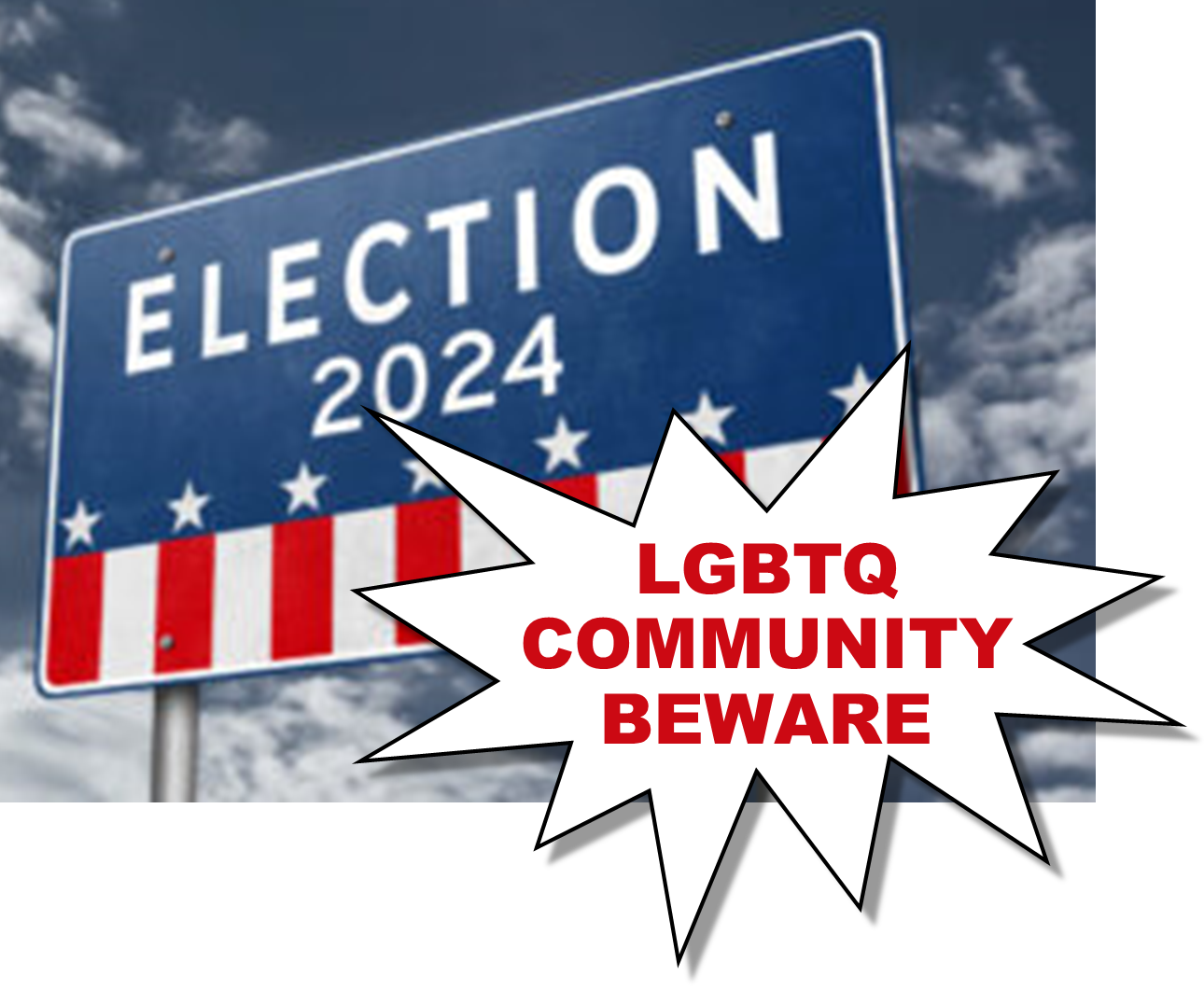
After 10 Years Of Marriage Equality, Queer Couples Are
Worried
Texas Finally Votes to Repeal Law Banning Homosexual
Conduct
Governor Signs Bill to Stop Schools From Outing LGBTQ
Students to Their Parents
Legal Expert
Explains: What The Trump
Administration Can (and Can't)
Do When It Comes to LGBTQ Rights
Massachusetts Will Soon Have a
New Law Protecting LGBTQ
Families
Michigan Outlaws
Gay and Trans Panic Defense in
Criminal Trials
ACLU: Trump on LGBTQ Rights:
Rolling Back Protections and
Criminalizing Gender
Nonconformity
Supreme Court
Allows Idaho Ban on Gender
Affirming Care for Transgender
Minors
Biden Has Tied the Record for Most LGBTQ
Judges Confirmed in Federal Courts
What
Will Trump Do?
First, a new Trump administration would reinstate and
significantly escalate the removal of
anti-discrimination policies. Indeed, Trump recently
said that he would eliminate protections for transgender
students “on day one” of his presidency. We can expect
the federal government to rescind all federal
regulations, rules, and other policies that prohibit
discrimination on the basis of sexual orientation and
gender identity, and to assert that federal civil rights
statutes don’t cover anti-LGBTQ discrimination either.
This could strip LGBTQ people of protections against
discrimination in many contexts, including employment,
housing, education, health care, and a range of federal
government programs.
Second, a new Trump administration would not only roll
back existing protections, but proactively require
discrimination by the federal government wherever it
can, including by banning transgender people from
serving openly in the Armed Forces and blocking
gender-affirming medical care for transgender people in
federal health care programs such as Medicare. The
results would be devastating, as thousands of
transgender people would immediately lose access to
needed medical care.
Third — and most ominously — if Trump returns to the
White House, we expect him to try to weaponize federal
law against transgender people across the country. He
plans to use federal laws — including laws meant to
safeguard civil rights — as a cudgel to override
critical state-level protections, arguing that state
laws that protect transgender students violate the
federal statutory rights of non-transgender students.
Additionally, a second Trump administration would take
the extreme position that the Constitution entitles
employers to discriminate against LGBTQ people based on
their religious beliefs, notwithstanding state
nondiscrimination laws. And, shockingly, it would try to
erase transgender people from public life entirely by
using federal obscenity laws to criminalize gender
nonconformity.
[Source: American Civil Liberties Union, January 2025]
Lambda Legal: Current Challenges for LGBTQ Community
SPLC: Why Gender Affirming Care is
Necessary
Message From
Lambda Legal
Legal Updates: LGBTQ Rights Under the Trump
Administration
LGBTQ Supreme Court Cases to Watch This Term
GOP Governor Signs Bill that Could legalize LGBTQ
Discrimination
Georgia Gov Signs Religious Liberty Law: LGBTQ Advocates
Worry it'll Allow Discrimination
Idaho Republicans Pass Resolution Urging
Supreme Court to End Marriage Equality
Gender Identity and Sexuality to be Protected Under
Michigan’s Hate Crime Law
Trump on LGBTQ Rights: Rolling Back Protections and
Criminalizing Gender Nonconformity
ACLU: Trump on LGBTQ Rights
Human Rights Watch: Trump Poses More Threats to Rights
of LGBTQ People
Donald Trump’s 10 Worst Attacks on the LGBTQ Community
ACLU: Fighting Back Against Trump
What Trump’s Re-Election Means for the
LGBTQ Community
LGBTQ Advocates Fear a Second Trump Term
Would Double Down on Restrictions
Lawyers and Advocacy Groups Advise LGBTQ
Community to Take Precautions Under Trump’s Executive
Order
Before Obergefell, Sandra Day O’Connor Married Two Gay
Men
Jeff Trammell came out to the history-making
Supreme Court justice...
and then she officiated their wedding ceremony at
the Supreme Court building...
Justice Sandra Day O’Connor approached performing a
same-sex wedding the way she approached just about
everything — all business and no fanfare yet with a
confident smile and sense of humor. She married me and
my husband, Stuart Serkin, on October 29, 2013, more
than a year and a half before the landmark Obergefell
decision which recognized the constitutional right of
same-sex couples to marry.
She was under no obligation to marry us or any same-sex
couple in the US Supreme Court in 2013, so why did she
do it? And, to the best of our knowledge, ours was the
only same-sex wedding where she officiated.
As it happened, we had both served in official roles for
the College of William & Mary, my alma mater. She was
then our university’s Chancellor while I served as
Rector (chair of the board of trustees). Even so, I felt
sure she would not have agreed to marry us is if she had
any reservations.
I believe her decision to take part was grounded in her
understanding of the simple humanity of gays and
lesbians and that we enjoyed the constitutional right to
be protected from governmental discrimination. Her 2003
concurring opinion in Lawrence v. Texas recognized the
right of “homosexual” Americans to participate in
society, without the power of the government excluding
them from benefits other Americans enjoyed. She cited
the Equal Protection Clause to the 14th Amendment as the
guarantor of these rights for gay and lesbian Americans.
I have no doubt that Justice O’Connor, known not only
for her ability to listen and to learn, had come to know
gay men and lesbians like us. She believed the exclusion
of gay and lesbian Americans from basic rights condemned
us to second-class citizenship that the Equal Protection
Clause prohibits.
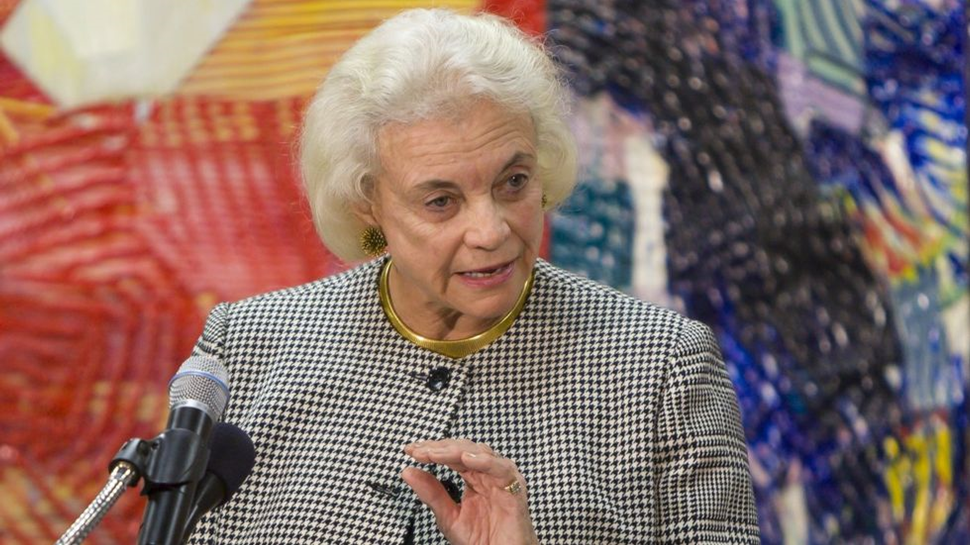
Sandra Day O’Connor, First Female Supreme
Court Justice, Dies at 93
Before Obergefell, Sandra
Day O’Connor Married Two Gay
Men
Sandra Day O'Connor Was a Friend to LGBTQ People on the
Supreme Court
O’Connor Performs Same-Sex Wedding at US Supreme Court
Building
Appointed by President Ronald Reagan, a conservative’s
conservative, O’Connor was the first woman appointed to
the US Supreme Court, after serving as Republican leader
in the Arizona State Senate. At that time, she was the
only member of the Supreme Court who prior to joining
the Court had been elected to office, where she
developed the habits to listen and learn from the
American people. Her trademark was common-sense. She
sought consensus and problem-solving, rather than the
embrace of extremist philosophies, perhaps one of the
reasons that she and Justice Scalia were often at odds.
When I was elected Rector of William and Mary in 2011, I
went to her office to pay my respects and to discuss
affairs of the university, where she was beloved on
campus. That afternoon, her flat, unadorned words
recounted how much she enjoyed her visits to
Williamsburg. She had even donned a slicker and gone
oystering out on the Chesapeake Bay with the students
from the marine science school. On other occasions law
students had been surprised to find the retired Supreme
Court justice casually hanging out in the student
lounge, accessible and interested in their studies.
Our conversation that afternoon rambled over the
landscape of higher education, interjected with her
repeated admonition to protect the rigor of the
traditional liberal arts curriculum. “Give them a good
well-rounded exposure to a little of everything” she
stated, perhaps drawing on how Stanford had provided her
that exposure to the world that she had been denied
growing up on the “Lazy B” ranch in rural Arizona.
When our discussion drew to a close, it was time for me
to say what was foremost on my mind. I did not know the
retired Justice very well at that point and hesitated to
raise my personal life at the end of what was a
professional discussion. But I realized I had to do it,
as my life and the lives of millions would have not been
the same had she not taken a stand.
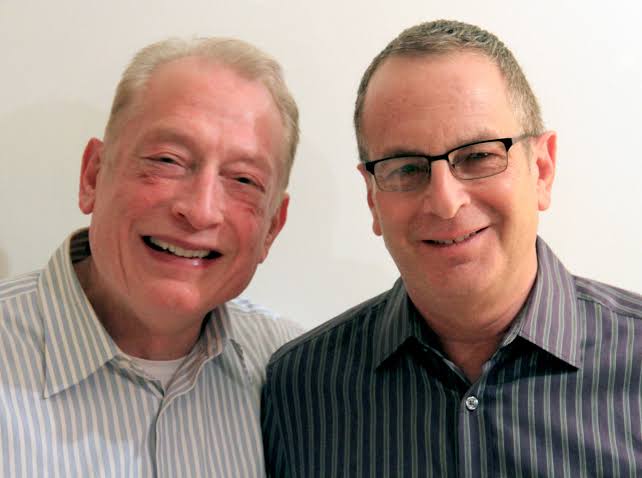
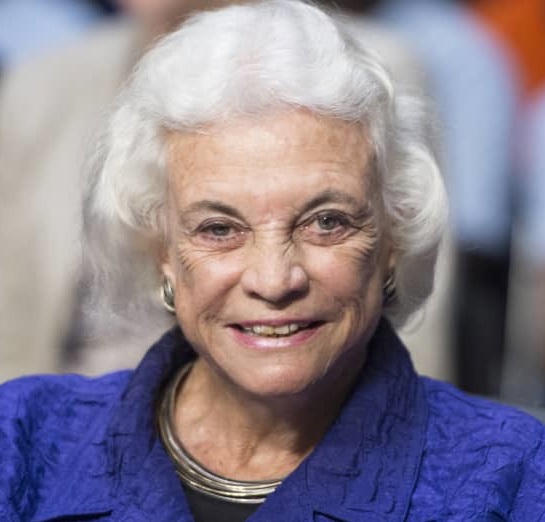
Sandra Day O’Connor, First Female Supreme
Court Justice, Dies at 93
Before Obergefell, Sandra
Day O’Connor Married Two Gay
Men
Sandra Day O'Connor Was a Friend to LGBTQ People on the
Supreme Court
O’Connor Performs Same-Sex Wedding at US Supreme Court
Building
“On a personal matter, I want to thank you for Lawrence
v. Texas and for making my partner of 34 years and me no
longer felons in our own country.” There. Despite my
apprehension about speaking so candidly about myself,
when the purpose of the meeting was completely
unrelated, I had verbalized my much-rehearsed words of
appreciation. And, in the process, I had come out to
Sandra Day O’Connor.
The retired Associate Justice of the Supreme Court
looked away for a second. Then a smile of
acknowledgement wordlessly emerged across that famous
Western face. The bluest of blue eyes penetrated me for
a second. Her elbows resting on the chair arms, she wove
her fingers together and looked to the side. From
reading about her life, I knew she had felt the sting of
being an outsider as a student at Stanford, having grown
up in the isolation of the Arizona desert. And I knew
that she had been both conservative and a champion of
women in Arizona. There was both a fearlessness and an
inscrutability about her that made me a little
uncomfortable.
But there was no mistaking the half-smile and nodded
response that told me that she likewise was pleased that
the 2003 Lawrence v. Texas decision had finally freed
millions of Americans in same-sex relationships from the
lingering fear of arrest, law enforcement intimidation,
or even imprisonment.
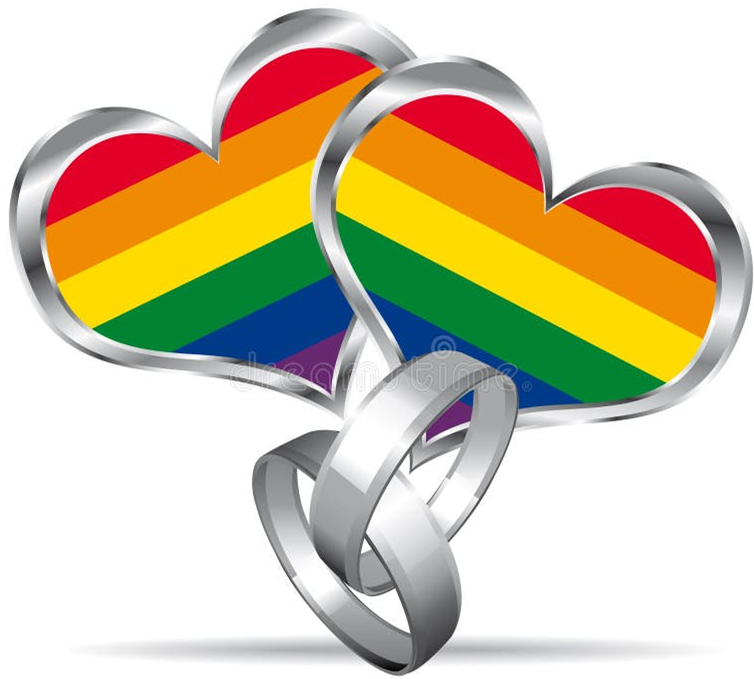
Message From
Lambda Legal
ACLU: Roadmap for Four More Years of Trump
After 10 Years Of Marriage Equality, Queer Couples Are
Worried
Texas Finally Votes to Repeal Law Banning Homosexual
Conduct
Governor Signs Bill to Stop Schools From Outing LGBTQ
Students to Their Parents
Year in Review: What Changed for LGBTQ
Rights in 2024
Legal Expert Explains: What The Trump
Administration Can (and Can't) Do When It Comes to LGBTQ
Rights
President Joe Biden on His Way to
Appointing Record Number of LGBTQ Judges
Denying Gender-Affirming Care to Inmate is
Unconstitutional, Says Dept of Justice
Before Obergefell, Sandra
Day O’Connor Married Two Gay
Men
California Supreme Court Welcomes First
Queer Woman
18 Attorneys General Challenge 'Don't Say
Gay' Law in Amicus Brief
Supreme Court’s Reputation Shattered
Thanks to Conservative Justices
If Abortion Rights Go, So Could Gay Marriage
Lambda Legal: Promo
Meet Roberta Kaplan: Lesbian Lawyer Who
Won a Verdict Against Donald Trump
Justice Horn: Leading the LGBTQ Community with Grace,
Grit, and Grindr
Two years later, Stuart and I went to the Supreme Court
to be married by Justice O’Connor. History hung in the
air that day. She would affirm our basic right to marry.
Our decades old relationship would no longer be
ambiguous, existing outside of the law.
I thought back to when she told me of her reverence for
Chief Justice John Marshall, a William & Mary alumnus,
whose portrait, seemingly radiated through the marble
walls of the court. His gift of judicial review forged
the court and its ability to protect the constitution.
Without Marshall’s embrace of judicial review and the
Lawrence v. Texas decision, Stuart and I and millions of
other same-sex couples could have been prosecuted as
felons in a number of states.
The 83-year-old former Republican Arizona legislator,
now using a cane, appointed by President Reagan 32 years
earlier, was making history again, one of many times she
had done so in her long career.
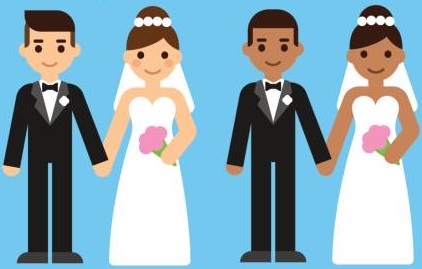 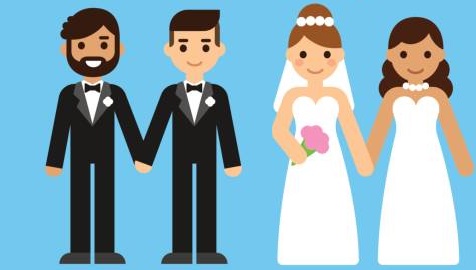
SPLC: Southern Poverty Law Center
Lavender Law
HRC: Human Rights Campaign
National LGBTQ Bar Association
Lambda Legal
Gay & Lesbian Advocates
& Defenders
American Civil Liberties Union
Immigration Equality
Out
Right International
Equaldex: LGBTQ Rights Across the World
After saying hello, Justice O’Connor needled me “You
know you’re a few minutes late.” Then, looking down, at
the black sneaker I wore on my left foot, slow to heal
from a break of the fifth metatarsal, she asked me, “Is
that a proper shoe for getting married?” As I looked at
the black sneaker on my left foot and the polished black
wingtip on my right, I explained the broken foot.
She used her standard wedding vows, which had been
slightly altered to accommodate the marriage of two men.
She pronounced us married and beamed, her blue eyes
reflecting the excitement of the moment. She signed the
marriage license, and we were lawfully married.
In the following days, the media focused on a
Republican-appointed Justice performing a same-sex
wedding in the Supreme Court. Most of the coverage was
straightforward but some of it was not. “Sandra Day
O’Connor Bringing God’s Judgment by Officiating Wedding
for Gay Couple” was the headline in one conservative
publication. Even if she bothered to read the critical
pieces, which she probably avoided, she would have been
unfazed. After all, for many years she had shunned
controversy with the same fearlessness, directness, and
common-sense that made her one of the nation’s most
respected jurists. She touched many lives and we were
privileged to count ourselves among them.
[Source: Jeff Trammell, Advocate Magazine, Dec 2023]
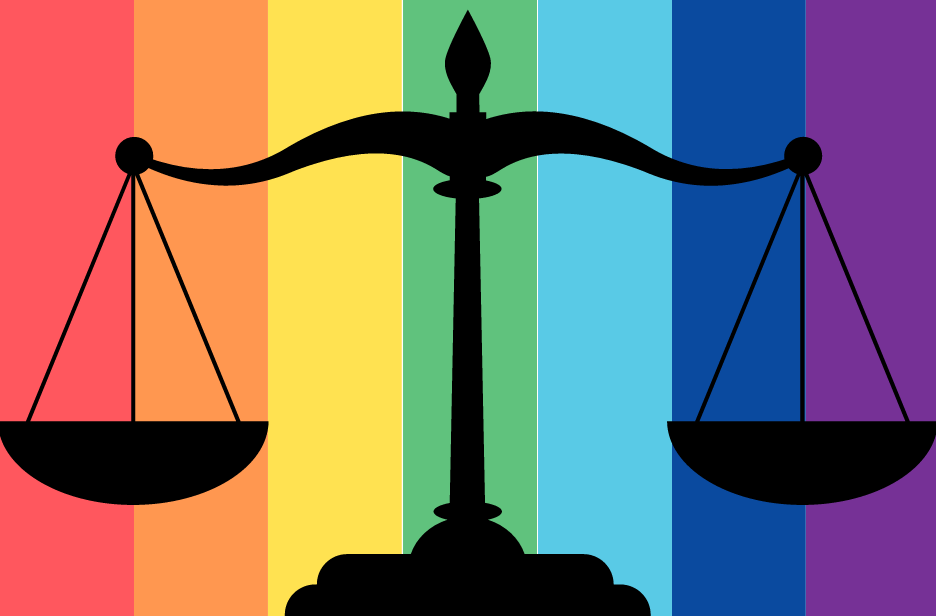
ACLU: Fighting Back Against Trump
Message From
Lambda Legal
Year in Review: What Changed for LGBTQ
Rights in 2024
Legal Expert Explains: What The Trump
Administration Can (and Can't) Do When It Comes to LGBTQ
Rights
Massachusetts Will Soon Have a New Law Protecting LGBTQ
Families
Michigan Outlaws Gay and Trans Panic
Defense in Criminal Trials
ACLU: Trump on LGBTQ Rights: Rolling Back Protections
and Criminalizing Gender Nonconformity
President Joe Biden on His Way to
Appointing a Record Number of LGBTQ Judges
Supreme Court Allows Idaho Ban on Gender
Affirming Care for Transgender Minors
Denial of Gender-Affirming Care to Inmate is
Unconstitutional, Says Department of Justice
The Case for Optimism About LGBTQ Rights
in the United States
Boston Globe: No God-Given Right to Discriminate Against
LGBTQ People
ACLU: End the Use of Religion to Discriminate
Wedding Photographer Loses Case Against
NY's Antidiscrimination Laws
Lambda Legal: The Notion of Religious Exemption
HRW: Religious Exemption and Discrimination Against
LGBTQ People
Natl LGBTQ Task Force: LGBTQ Discrimination Masquerading
as Religious Freedom
Equaldex: LGBTQ Rights Across the World
LGBTQ Rights in the United States
Out
Right International
Roberta Kaplan: Lesbian Lawyer Who Won a Verdict Against
Donald Trump
Kaplan is most famous as the lawyer who brought
down the Defense of Marriage Act
Roberta Kaplan, the lawyer who represented E. Jean
Carroll in her lawsuit against Donald Trump, is a
lesbian who’s a longtime champion of LGBTQ and women’s
rights, most notably as the attorney who brought down
the main part of the Defense of Marriage Act.
A jury in federal court in New York City reached a
verdict in May 2023 in Carroll’s suit, which stemmed
from an incident in the mid-1990s. Carroll, a
journalist, said that Trump raped her in the Bergdorf
Goodman department store in Manhattan and that he
defamed her by saying she was lying about it. The jury
found that Carroll did not prove he raped her, but she
did prove he sexually abused and defamed her. Jurors
ordered Trump to pay her $5 million. Trump has denied
the allegations and vowed to appeal. He could not be
criminally prosecuted because the statute of limitations
for such charges has passed, but Carroll could bring a
civil suit.
Carroll did not speak to reporters as she left the
courthouse, but Kaplan said, “We are very happy.”
Carroll later issued a statement saying, “I filed this
lawsuit against Donald Trump to clear my name and to get
my life back. Today, the world finally knows the truth.
This victory is not just for me but for every woman who
has suffered because she was not believed.” Kaplan, also
issued a statement. “No one is above the law, not even a
former President of the United States,” she said,
adding, “For far too long, survivors of sexual assault
faced a wall of doubt and intimidation. We hope and
believe today’s verdict will be an important step in
tearing that wall down.”
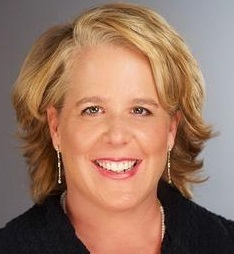
Meet Roberta Kaplan: Lesbian Lawyer Who
Won a Verdict Against Donald Trump
Biographical Notes: Roberta Kaplan
Lawyer Roberta Kaplan: After the Trial
E. Jean Carroll Talks About Court Victory Against Trump
GLAAD President and CEO Sarah Kate Ellis released a
statement praising Carroll and Kaplan: “E. Jean
Carroll’s courage, and her legal team’s expertise led by
LGBTQ icon Robbie Kaplan, must become a turning point in
history for all survivors of sexual abuse and torment.
Voters have already held Donald Trump accountable for
his atrocious, discriminatory presidency and treatment
of women and all marginalized communities. Jurors and
the world at large got to see his disgusting rhetoric on
full display, unapologetically bragging about rape and
abuse. Media reporting on his ongoing, inexplicable
political career must follow Kaplan’s lead and challenge
the former president’s lies and abusive behavior. Voters
and the media can follow the jury’s lead to continue
holding Trump accountable for his revolting words and
actions.”
Kaplan is most famous for representing Edie Windsor, a
lesbian widow who challenged the Defense of Marriage
Act. Windsor had married her longtime partner, Thea
Spyer, in Canada in 2007, after same-sex marriage became
legal there. But section 3 of DOMA prevented the US
government from recognizing their marriage, so when
Spyer died in 2009, Windsor owed $363,000 in estate
taxes, which she would not have owed if she had been
married to a man.
Message From
Lambda Legal
2023’s Legislative Attacks on LGBTQ Rights
Sandra Day O’Connor, First Female Supreme
Court Justice, Dies at 93
For LGBTQ Rights, 2023 Was a Year of
Fighting: Here’s What We Won
Meet the Texas Judge Who Refuses to Marry Same-Sex
Couples
Anti-LGBTQ Laws Are Being Blocked in Federal Courts
Across Country
Texas Sued by ACLU Over Unconstitutional
Drag Ban
Trans Judge Appointed in New York, Makes
History
Policymakers and Lawmakers Want to Erase
Trans Identities
Lambda Legal: Promo
Kaplan took Windsor’s case at a time when many major
LGBTQ rights organizations were somewhat reluctant to
fight for marriage rights. The case, Windsor v. US, went
all the way to the Supreme Court, which ruled in 2013
that DOMA’s section 3 was unconstitutional. It “violates
basic due process and equal protection principles
applicable to the Federal Government,” Justice Anthony
Kennedy wrote for the court’s majority.
The ruling did not establish marriage equality
nationwide, but it meant that any federal law referring
to “marriage” or a “spouse” had to apply to legally
married same-sex couples as well as opposite-sex ones.
So married same-sex couples could file joint federal tax
returns and receive numerous other federal benefits and
protections. It also, along with the overturning of
California’s Proposition 8, resulted in unstoppable
momentum for marriage equality, culminating in the high
court’s Obergefell v. Hodges decision in 2015, striking
down all remaining bans on same-sex marriage.
Throughout the Windsor case, Kaplan made sure the
spotlight was on her client. “I knew the focus should be
on Edie; she would be the spokesperson for our case, and
before long, she would become the spokesperson for our
cause,” Kaplan wrote in Then Comes Marriage, a book
about the case. When Windsor died in 2017, Kaplan said,
“Representing Edie Windsor was and will always be the
greatest honor of my life. She will go down in the
history books as a true American hero. With Edie’s
passing, I lost not only a treasured client, but a
member of my family.”
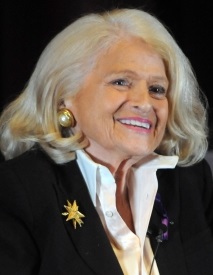

Meet Roberta Kaplan: Lesbian Lawyer Who
Won a Verdict Against Donald Trump
Biographical Notes: Roberta Kaplan
Lawyer Roberta Kaplan: After the Trial
E. Jean Carroll Talks About Court
Victory Against Trump
Kaplan continued fighting for marriage equality and
LGBTQ rights in general, challenging homophobic laws
around the nation. In 2014, when she was arguing a case
against Mississippi’s ban on same-sex marriage, one
court observer wrote, “Watching the brilliant Roberta
Kaplan and the State's attorney argue this case is like
watching Aretha Franklin versus a drunk, bumbling
fraternity guy in a singing contest.”
Kaplan’s reputation was somewhat sullied by the
revelation that she had advised New York Gov. Andrew
Cuomo's staff on responding to sexual harassment
accusations, and she resigned as co-chair of the board
of anti-harassment group Time’s Up in 2021. The New York
attorney general found the accusations credible, and
Cuomo stepped down as governor. When the news came out
about Kaplan, she was already representing Carroll, who
tweeted that Kaplan “is the best lawyer in America” and
would remain her counsel.
After 25 years with the firm of Paul, Weiss, Rifkind,
Wharton & Garrison, Kaplan and Julie Fink founded Kaplan
Hecker & Fink in 2017. One of its first cases was
against the leaders of the violent white supremacist
demonstration in Charlottesville, Va., that year, and
Kaplan and her team won a $26 million verdict. Kaplan
has also represented Donald Trump’s niece Mary Trump in
legal action against her uncle and brought legal
challenges to Florida’s “don’t say gay” law.
With marriage equality under threat after conservative
Supreme Court justices expressed a desire to overturn
Obergefell if they have the opportunity, Kaplan lobbied
for writing equal marriage rights into federal law,
therefore protecting the right from Supreme Court
action. Along with many other LGBTQ activists and
allies, she supported the Respect for Marriage Act,
which Congress passed and President Joe Biden signed
into law last year. The act did codify marriage equality
and — finally — repealed DOMA, which remained on the
books although unenforceable.
[Source: Trudy Ring, Advocate, May 2023]
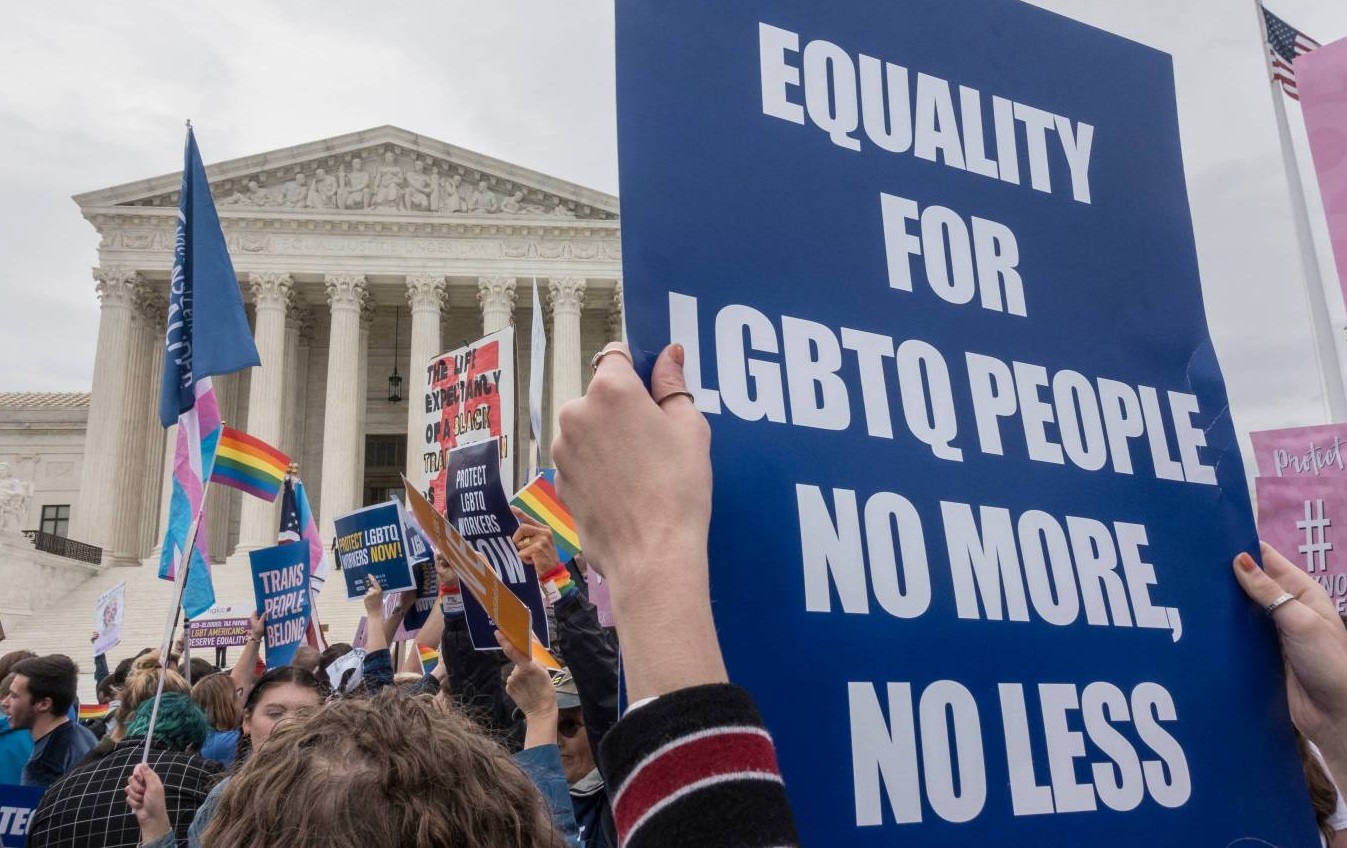

ACLU: Roadmap for Four More Years of Trump
Legal Expert Explains: What The Trump
Administration Can (and Can't) Do When It Comes to LGBTQ
Rights
Massachusetts Will Soon Have a New Law Protecting LGBTQ
Families
Michigan Outlaws Gay and Trans Panic
Defense in Criminal Trials
ACLU: Trump on LGBTQ Rights: Rolling Back Protections
and Criminalizing Gender Nonconformity
President Joe Biden on His Way to
Appointing a Record Number of LGBTQ Judges
Sandra Day O’Connor, First Female Supreme
Court Justice, Dies at 93
Before Obergefell, Sandra
Day O’Connor Married Two Gay
Men
Anti-LGBTQ Laws Are Being Blocked in Federal Courts
Across the Country
The Case for Optimism About LGBTQ Rights
in the United States
SPLC: LGBTQ Rights for Students
at School
LGBTQ Rights: 50 Years After Stonewall
In Gay We Trust: Queer Liberation is Far From Over
LGBTQ Bar: The Gay
Panic Defense
Court Rules Yeshiva University Must Recognize LGBTQ
Student Group
How
Discrimination Affects the LGBTQ Population
Equaldex: LGBTQ Rights Across the World
Chuck
Williams, Founder of The Williams Institute at UCLA Law
School, Dies at 88
The LGBTQ community has lost one of its most
ardent and impactful members and supporters.
The founder and namesake of The Williams Project, which
became the LGBTQ think tank the Williams Institute at
the University of California Los Angeles’ School of Law,
died in April 2023. He was 88 years old.
Brad Sears, the Institute’s founding executive director,
announced Charles “Chuck” R. Williams’s death at a
private gala rewards reception to honor champions in
LGBTQ advocacy, including Speaker Emerita Nancy Pelosi,
at the conclusion of the 2023 Williams Institute Annual
Update Conference.
“All of us are here at the Williams Institute event
because 23 years ago, Chuck Williams had the vision and
the generosity and the drive and cornered many of you
over lunch or dinner to create the Williams Institute,
which has had such an incredible impact on all of us in
our world,” Sears said as he welcomed guests to UCLA’s
Faculty Club. “I’m really sorry to have to start tonight
by telling you that Chuck has passed away,” Sears added
as a groan washed over the crowd.
“Chuck loved the Institute. You know that. You’ve seen
him at every single event that we’ve ever had except
this one. This is the first one that he and his husband
Stu Walter will miss,” Sears said. “Chuck was so
delighted that Nancy Pelosi would be coming this year.
It gave him so much joy. He would be so thrilled.”
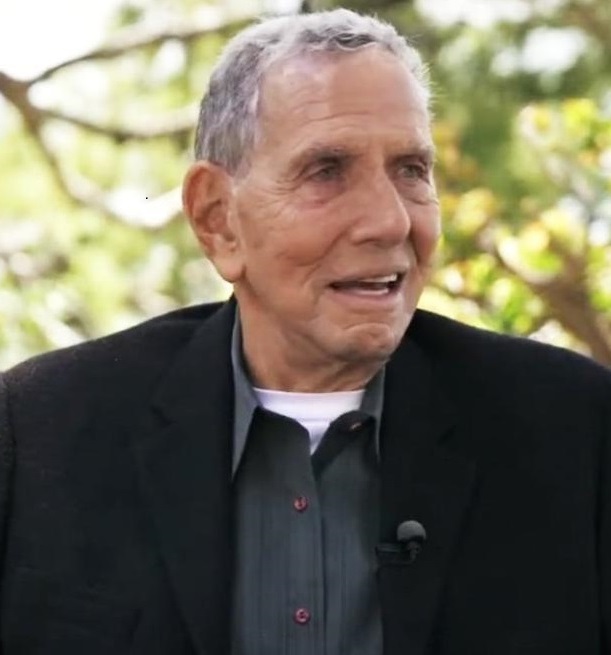
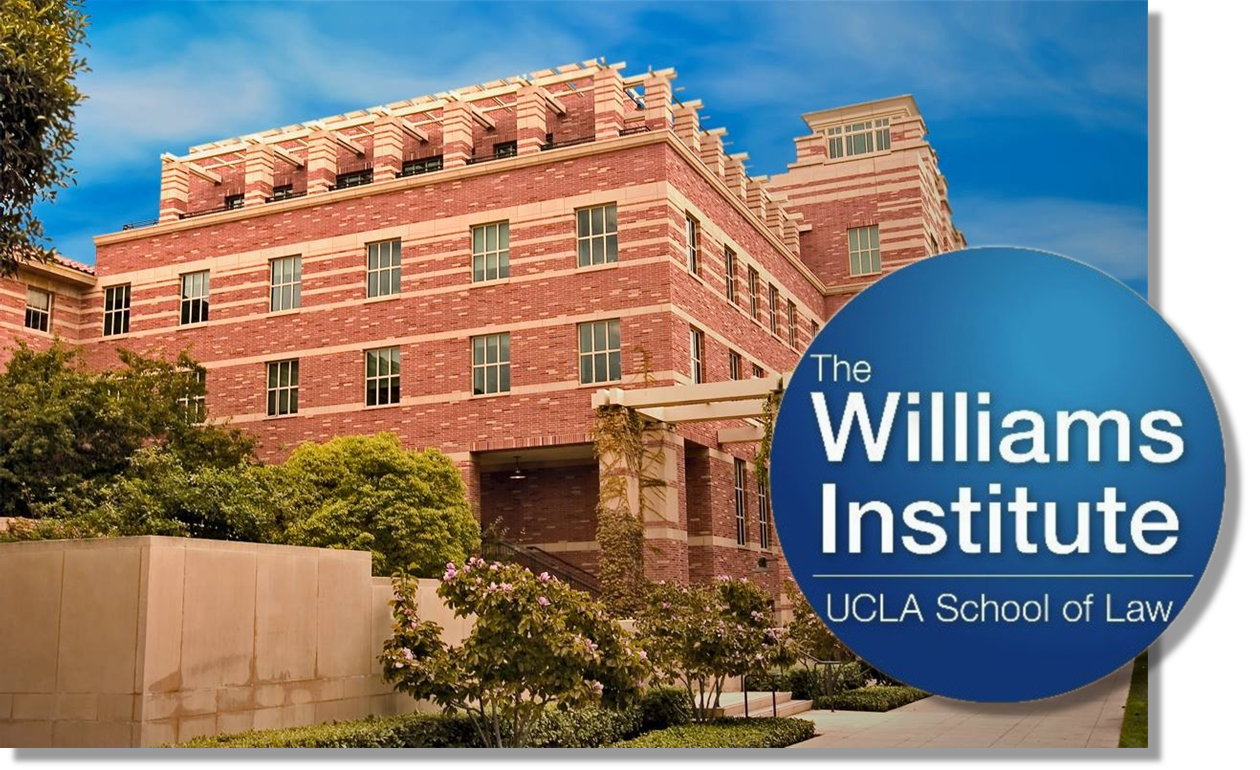
Chuck Williams, Founder of The Williams Institute at
UCLA Law School, Is Dead
Williams Institute of Gay & Lesbian Strategic
Studies
Chuck Williams and Stu Walter: Williams Institute
Founders Award
UCLA
Law School: Williams Institute
Chuck Williams, Co-Founder of UCLA Law's Williams
Institute, Dies
Remembering Chuck Williams
Outwords: Chuck Williams
“Chuck and Stu met in 1967 when they skied into each
other arms on Lake Nacimiento,” Sears wrote. “Few today
have had relationships that last 56 years. Even fewer
relationships have been tested as theirs has been. 1967
was two years before Stonewall, every state except
Illinois had sodomy laws, and gay men were regularly
entrapped by the LAPD and sent for conversion therapy in
state hospitals.”
Sears continued, “Chuck and Stu risked being arrested,
fired, and confined if they were out. But they
maintained their relationship through those years, the
AIDS epidemic, and through the challenges that
eventually come with being survivors and living a long
full life. I am particularly honored to have witnessed
Stu’s incredible strength during the past several
months. He remained Chuck’s principal caregiver until
the end, rarely left his side, and kept him comfortable
at home.”
In 2001, Williams, Bill Rubenstein, Sears, and UCLA law
scholars founded The Williams Project. Williams donated
$2.5 million to UCLA Law School to establish the
organization. A college or university had never received
a larger gift to support a gay or lesbian academic
program. The Institute conducts rigorous,
independent research on sexual orientation and gender
identity law and policy. Their mission was to counter
the pervasive bias of law, policy, and culture against
LGBTQ people.
Chuck Williams, Founder of Williams Institute at UCLA
Law School, Is Dead
New Report: 91 Percent of Anti-LGBTQ
Bills Failed in 2022
Missouri Leads
Nation in Anti-LGBTQ
Legislation in 2023, Says ACLU
Biden Announces
Two Judicial Nominees Who Are Lesbians
Mapping LGBTQ Equality in America
Washington Post: State Efforts to Limit LGBTQ Rights
LGBTQ Rights by Country or Territory
Timeline: American Gay Rights Movement
LGBTQ Rights in the United States
Trans Girl is Told Not to Wear Dress to Her Graduation
The Atlantic: Gay Rights and the Legal Mess Left Behind
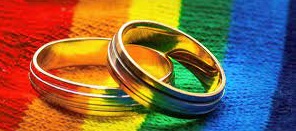
In 2006, the Williams Project merged with the Institute
of Gay & Lesbian Strategic Studies to become the
Williams Institute. Williams gave more than $20
million over time to support the institute. His vision
was to create an organization to level the playing field
for LGBTQ people under the law.
Interdisciplinary research has been a critical component
of the group's mission from the outset and continues to
be a key component of its work today. For example,
studies evaluated the impact of marriage equality, filed
amicus briefs in seminal cases like Lawrence v. Texas,
and examined the demographic characteristics of same-sex
couples. In 2011, the Williams Institute published one
of the first data-backed estimates of LGBTQ people in
the US. This report shed light on how policy and law may
the queer community.
Over the past two decades, the Williams Institute has
provided expertise to policymakers, legislators,
advocates, and the courts. Government agencies have
benefited from the advice of Williams Institute scholars
in improving LGBTQ data collection. Many have testified
before Congress in hearings about the Don’t Ask, Don’t
Tell, and Employment Nondiscrimination Act.
In addition, the Williams Institute’s reports on the
number of same-sex couples raising children were
emphasized by Justice Anthony Kennedy during the
landmark court case Obergefell v. Hodges, in which
marriage equality was granted in the US.
[Source: Christopher Wiggins, Advocate. April 2023]
ACLU: Fighting Back Against Trump
Massachusetts Will Soon Have a New Law Protecting LGBTQ
Families
Michigan Outlaws Gay and Trans Panic
Defense in Criminal Trials
Lambda Legal: Promo
ACLU: Trump on LGBTQ Rights: Rolling Back Protections
and Criminalizing Gender Nonconformity
Supreme Court Allows Idaho Ban on Gender
Affirming Care for Transgender Minors
SPLC: LGBTQ Rights for Students at School
LGBTQ Rights: 50 Years After Stonewall
In Gay We Trust: Queer Liberation is Far From Over
LGBTQ Bar: The
Gay Panic Defense
The Case for Optimism About LGBTQ Rights
in the United States
Court Rules Yeshiva University Must Recognize LGBTQ
Student Group
How
Discrimination Affects the LGBTQ Population
Supreme Court Landmark Decision: Illegal to Discriminate
Based on Sexual Orientation
The Atlantic: Gay Rights and the Legal Mess Left Behind
LGBTQ Rights: 50 Years After Stonewall
Info: Money
and
Financial Matters
Sexual Harassment Explained
18
Attorneys General Challenge 'Don't Say Gay' Law in
Amicus Brief
The attorneys general say that the Florida law is
unconstitutional.
Washington DC Attorney General Karl Racine announced a
coalition of 18 attorneys general that are opposing
Florida’s Parental Rights in Education Act — also known
as the “don’t say gay” law. Racine’s office said in a
press release late last week that the law posed a threat
to LGBTQ students, emphasizing that they are at
particular risk and harm to discrimination.
“My office has a strong track record of fighting for
LGBTQ rights in the District and across the country to
make sure that everyone can simply be who they are and
love who they love,” Racine said. “Florida’s law offers
no benefit to anyone and in fact puts children and
families in harm’s way. We will continue to use all of
our authority to help strike down this law and any other
hateful, discriminatory policies that threaten people’s
fundamental freedoms.”
In an amicus brief submitted in support of a lawsuit
brought by several Florida families, the attorneys
general state that the law, “are far outside the bounds
of ordinary educational decision-making,” adding that
its “outlier” status further indicates it is
“constitutionally suspect.”
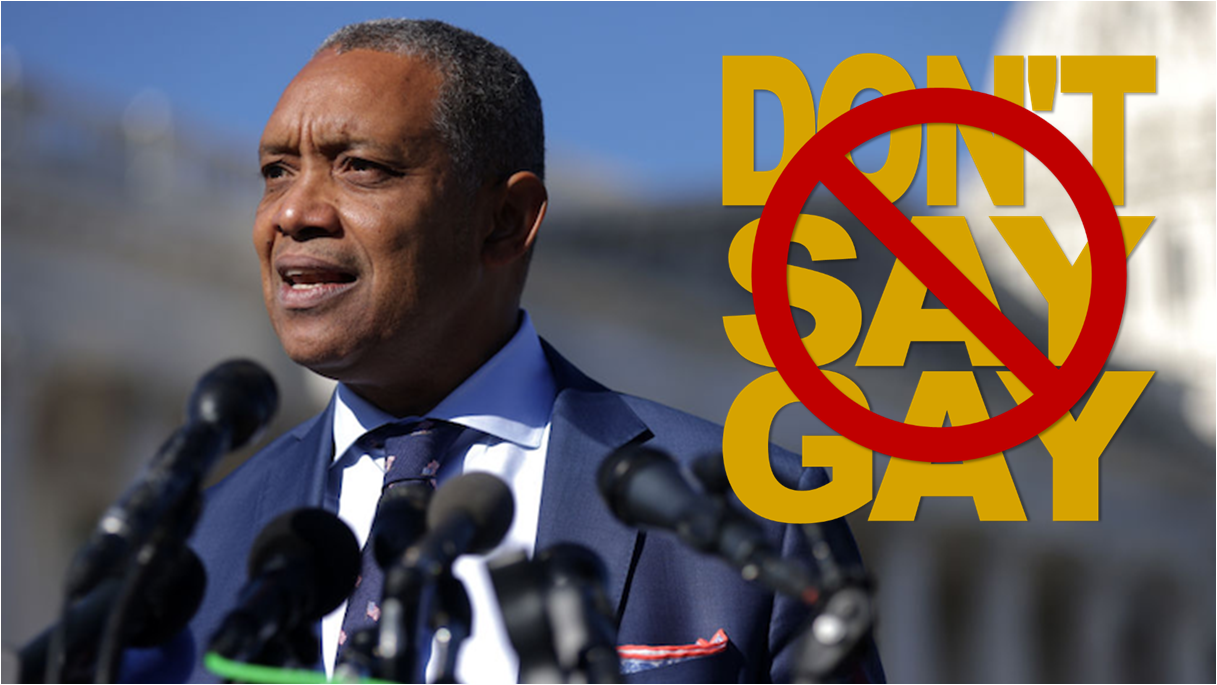
18 Attorneys General Challenge 'Don't Say
Gay' Law in Amicus Brief
Karl Racine Leads
Attorneys General Challenge of Florida's
‘Don’t Say Gay’ Law
AG Racine Leads Coalition Challenging
Florida's "Don't Say Gay" Law, Which
Bans Discussion of LGBTQ Issues in
Schools
The law, which has been called vague by critics, bans
“classroom discussion about sexual orientation or gender
identity in certain grade levels or in a specified
manner. “Classroom instruction by school personnel or
third parties on sexual orientation or gender identity
may not occur in kindergarten through grade 3 or in a
manner that is not age appropriate or developmentally
appropriate for students in accordance with state
standards,” it also states.
The families’ lawsuit, which was filed only days after
the bill was signed into law by Republican Gov. Ron
DeSantis in March, argues that the legislation violates
Due Process and Equal Protection, as well as First
Amendment free speech rights. The suit also raises
questions about how the law will change in-classroom
discussions and school functions. Already, many teachers
and school district officials have voiced uncertainty
about what goes against the law and what doesn’t.
“To appreciate how this dynamic will unfold in practice,
just consider how students, teachers, parents, guests,
and school personnel might navigate these common
questions: Can a student of two gay parents talk about
their family during a class debate about civics? Can
that student paint a family portrait in art class? Can a
lesbian student refer to their own coming out experience
while responding to a work of literature? Can a
transgender student talk about their gender identity
while studying civil rights in history class? What if
that occurs in homeroom, or during an extracurricular
activity with a faculty supervisor, or in an op-ed in
the faculty supervised school newspaper? Are teachers
allowed to respond if students discuss these aspects of
their identities or family life in class? If so, what
can they say?” the suit reads.
The brief points out that the states that submitted it
“have curricula in place that allow for age-appropriate
discussion of LGBTQ issues while respecting parental
views on the topic,” according to the release.
“The law is causing significant harms to students,
parents, teachers, and other states. Non-inclusive
educational environments have severe negative health
impacts on LGBTQ students, resulting in increased rates
of mental health disorders and suicide attempts,” the
release said. “These harms extend to youth not just in
Florida, but throughout the country.”
Racine is joined by the attorneys general of New Jersey,
California, Colorado, Connecticut, Delaware, Hawaii,
Illinois, Maine, Maryland, Massachusetts, Michigan,
Minnesota, Nevada, New York, Oregon, Rhode Island, and
Washington.
[Source: Alex Cooper, Advocate, December 2022]
Anti-LGBTQ Laws Are Being Blocked in Federal Courts
Across the Country
How
Discrimination Affects the LGBTQ Population
Supreme Court Landmark Decision: Illegal to Discriminate
Based on Sexual Orientation
The Atlantic: Gay Rights and the Legal Mess Left Behind
LGBTQ Rights: 50 Years After Stonewall
Info: Money
and
Financial Matters
Sexual Harassment Explained
Court Rules Yeshiva University Must Recognize LGBTQ
Student Group
If Abortion Rights Go, So Could Gay Marriage
Biden Announces
Two Judicial Nominees Who Are Lesbians
Jo-Na
A. Williams: Queer Black Lawyer
Jo-Ná A. Williams, Esq. is an award-winning attorney,
business advisor, and Instructor who founded J.A.
Williams Law P.C. in 2011 to provide artists,
entrepreneurs, and thought leaders with ways to
successfully navigate their careers, secure their
companies, and provide assistance with business,
entertainment, and intellectual property matters.
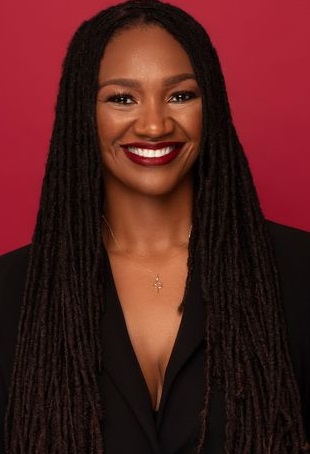
Jo-Ná is dedicated to issues regarding the rights of
creators and the security of their businesses because
she believes they are a population highly vulnerable to
exploitation without proper knowledge. She founded her
coaching company in 2013 to advise small business owners
on entrepreneurship.
Jo-Ná is a board member of the LGBTQ Community Center in
New York and UPI Loan Fund based in Arizona. She’s also
an instructor for LinkedIn Learning and licensed to
practice law in New York. She's a certified Yoga
Instructor and formally trained in herbalism, energy
work, and divination.
Wedding Photographer Loses Case Against
NY's Antidiscrimination Laws
The Case for Optimism About LGBTQ Rights
in the United States
Gay High
Schooler Suspended for Wearing Nail Polish
LGBTQ Bar: The
Gay Panic Defense
LGBTQ Rights by Country or Territory
In Gay We Trust: Queer Liberation is Far From Over
Timeline: American Gay Rights Movement
How
Discrimination Affects the LGBTQ Population
Supreme Court Landmark Decision: Illegal to Discriminate
Based on Sexual Orientation
The Atlantic: Gay Rights and the Legal Mess Left Behind
Equaldex: LGBTQ Rights Across the World
LGBTQ Rights: 50 Years After Stonewall
Info: Money
and
Financial Matters
Sexual Harassment Explained
Supreme Court’s Reputation Shattered Thanks to
Conservative Justices
Based on the oral arguments in the case of a Christian
web designer seeking to gut nondiscrimination
protections, 2023 isn’t looking like a good year for
LGBTQ rights on the Supreme Court. But it’s not looking
like a great year for the Court itself either. The
Court is heading into the new year at a level of
disarray and public distrust not seen in modern times.
Moreover, there’s little sign that the justices intend
to do anything to address the issue, except to possibly
make it even worse.
The past year has seen a series of explosive revelations
about the Court, starting with the leak of the Dobbs
decision overturning abortion rights. The Court has long
prided itself on being a closed system, so the idea that
an entire draft decision on a major topic could appear
in the press a month prior to its release was shocking.
Just as shocking, the draft was pretty much the final
version, so whoever leaked it did so knowing full well
the impact it would have.
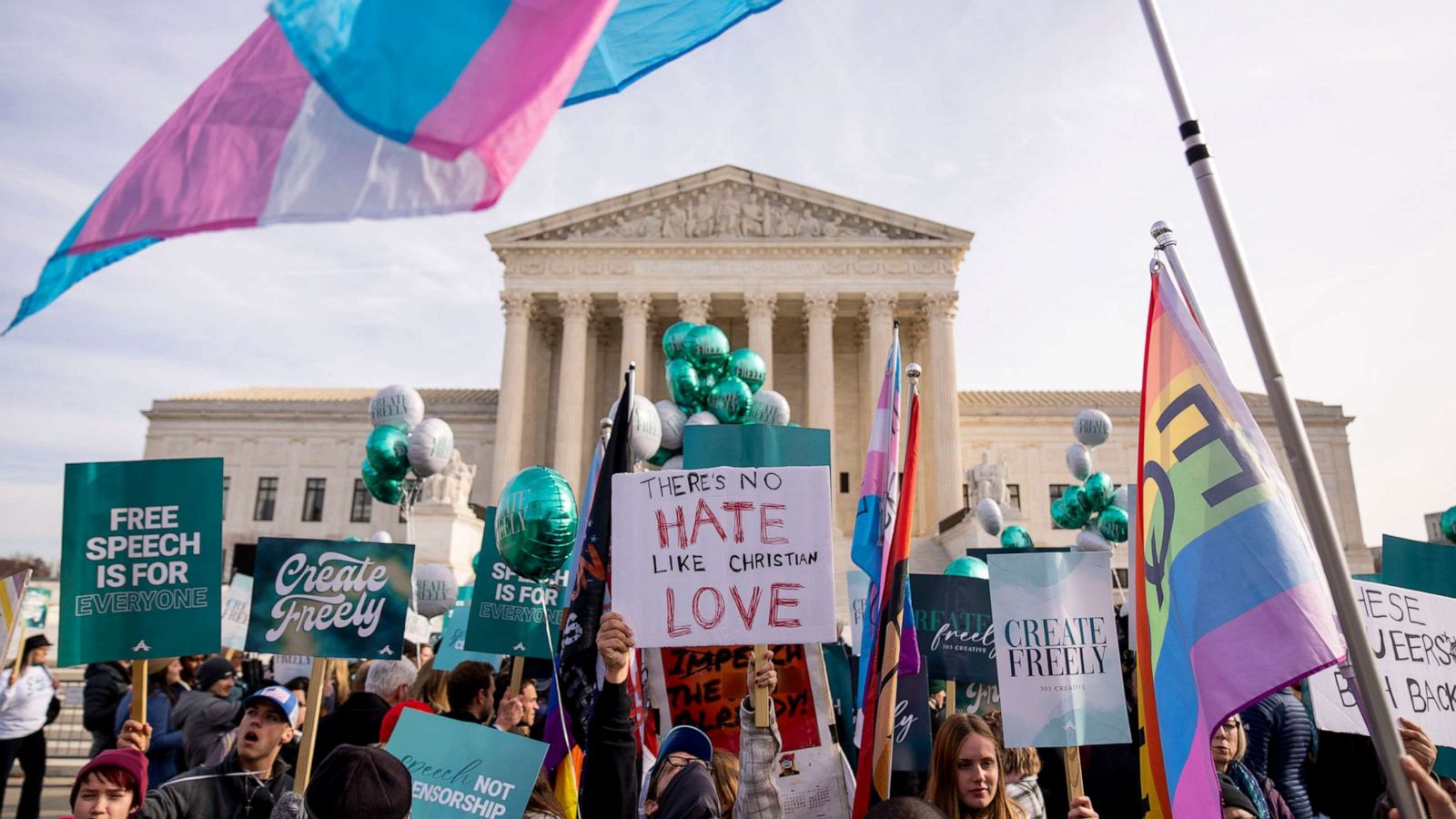
CBS: Supreme Court Appears Sympathetic to Colorado
Designer Who Opposes Creating Same-Sex Wedding Sites
TruthOut: Supreme Court Poised to Side With Anti-LGBTQ
Web Designer in Discrimination Case
NBC: Supreme Court Leans Toward Web Designer Over
Refusal to Work on Same-Sex Weddings
SCOTUS Blog: Conservative Justices Poised to Side With
Web Designer Who Opposes Same-Sex Marriage
As it turns out, there’s speculation that the author of
the draft, Samuel Alito, may have been the leaker. The
reason is that the former leader of a right-wing group
now says that Alito gave major donors of the group a
heads-up on another major decision a few years back (Alito
denied the report). The leaks are just one sign of
a dysfunctional Court. Alito has given full vent to the
sneering side of his personality, publicly mocking
foreign leaders who objected to the abortion ruling.
Under normal circumstances, this would be a terrible
breach of etiquette, but now it’s what passes for normal
“own-the-libs” rhetoric from the Court’s conservatives.
Then there’s the conflict of interest problem rife among
the justices on the right. On top of the list is
Clarence Thomas, whose wife, Ginni, is a would-be
seditionist. Despite her deep involvement in Donald
Trump’s efforts to overturn the 2020 election results,
Justice Thomas has yet to recuse himself from cases
involving the January 6 insurrection.
That’s not the only shady example. A representative from
an arm of the anti-LGBTQ group Liberty Counsel boasted
that the group regularly prays with justices in their
chambers, despite having cases before the Court (Liberty
Counsel said that was a past practice, as if that made
it okay).
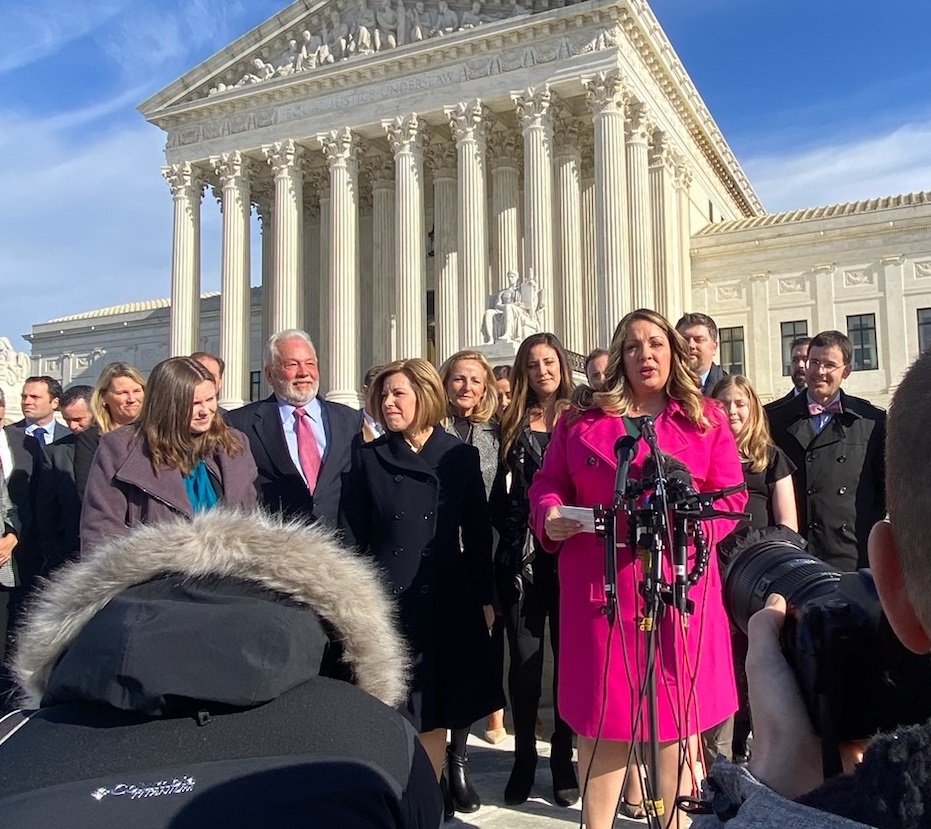
LGBTQ Nation: Supreme Court’s Reputation
Shattered Thanks to its Conservative Justices
ABC: Supreme Court Hears Major Case on Free Speech,
Faith and LGBTQ Equality
Reuters: US Supreme Court Leans Toward Web Designer With
Anti-Gay Marriage Stance
NBC: Supreme Court Leans Toward Web Designer Over
Refusal to Work on Same-Sex Weddings
In a more festive and equally disturbing example,
Justice Brett Kavanaugh attended a Christmas holiday
party hosted by the head of the Conservative Political
Action Coalition (CPAC). Among those in attendance were
a who’s who of the right, including Stephen Miller, the
loathsome architect of Donald Trump’s anti-immigrant
policies. More recently, Miller has been heading a
group, American First Legal, which took a lead role in
anti-trans ads in the midterms and - oh, by the
way – has filed briefs before the Supreme Court.
Just to show you where their loyalties lie, Alito,
Kavanaugh, Amy Coney Barrett and Neil Gorsuch showed up
at a gala dinner in November held by the Federalist
Society, the right-wing legal group that vetted Trump’s
judicial appointees, where they received a long ovation
for their ruling overturning abortion rights.
Such disregard for the appearance of neutrality is
possible because the Supreme Court doesn’t have any
ethical guidelines – literally. Unlike any other
judicial body in the US, the Court relies upon the
integrity of the justices to police itself.

Look at where that’s gotten us. No wonder the public’s
trust in the Supreme Court is at historic lows. The
conservative wing’s insistence on imposing its own view
of society, even if that means overturning precedents,
has made the Court seem like just another political
player and not a group of legal giants. The attitude of
Alito and company seems to be, “Who cares?” As long as
they have the power, society can get lost. As for
the Court, it will take years to rebuild the reputation
that the right’s disregard for basic ethics has
destroyed. Meanwhile, you can count on the partying and
praying to keep happening, despite the conflicts they
may represent.
[Source: John Gallagher, LGBTQ Nation, December 2022]
Wedding Photographer Loses Case Against
NY's Antidiscrimination Laws
Gay High
Schooler Suspended for Wearing Nail Polish
Anti-LGBTQ Laws Are Being Blocked in Federal Courts
Across the Country
LGBTQ Bar: The
Gay Panic Defense
Lambda Legal: Promo
In Gay We Trust: Queer Liberation is Far From Over
LGBTQ Rights by Country or Territory
Timeline: American Gay Rights Movement
Court Rules Yeshiva University Must Recognize LGBTQ
Student Group
Biden Announces
Two Judicial Nominees Who Are Lesbians
Info: Money
and Financial Matters
LGBTQ Rights in the United States
The Atlantic: Gay Rights and the Legal Mess Left Behind
Out
Right International
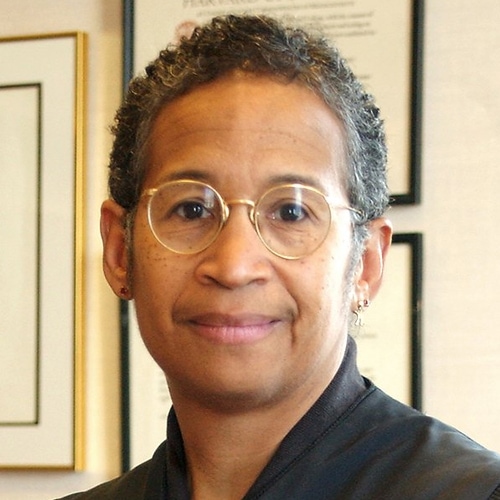
Deborah Batts: First Out LGBTQ
Federal Court Judge
Deborah
Batts was nominated by President Bill Clinton in 1994 to
the US District Court for the Southern District of New
York, becoming the first out LGBTQ federal court judge
when she was confirmed. It would not be until 2011 that
another out LGBTQ person would become a federal judge.
Batts served on the court for more than 25 years
(presiding over many high-profile cases) until her
passing in 2020. Many LGBTQ judges cite Batts as the
person who gave them hope they could serve openly on the
bench.
US Senate Confirms First Openly LGBTQ Female Appeals
Judge
International
Association of LGBTQ Judges
List of LGBTQ State Supreme Court Justices
Judge Beth Robinson: First Out Lesbian to Serve on Any
Federal Circuit Court
US Courts Celebrate LGBTQ Pride
LGBTQ Judge:
Charles Adams
LGBTQ Judge:
Julie Emede
We Need More LGBTQ Federal Judges in California
Philadelphia’s LGBTQ Judges
When A Gay Judge Rules On Gay Rights
Lambda Legal Report: Justice out of Balance
LGBTQ
Judges
Every day, federal judges
make decisions that affect our lives in important ways.
They determine the breadth of our fundamental rights,
ensure fairness in criminal proceedings and occasionally
make decisions that change the course of history.
While the federal courts strive to be above the fray,
their decisions are often viewed through the lens of
partisan politics. But even when judicial decisions may
be unpopular, they have more credibility when they are
made by a judiciary that reflects the nation’s full
diversity.

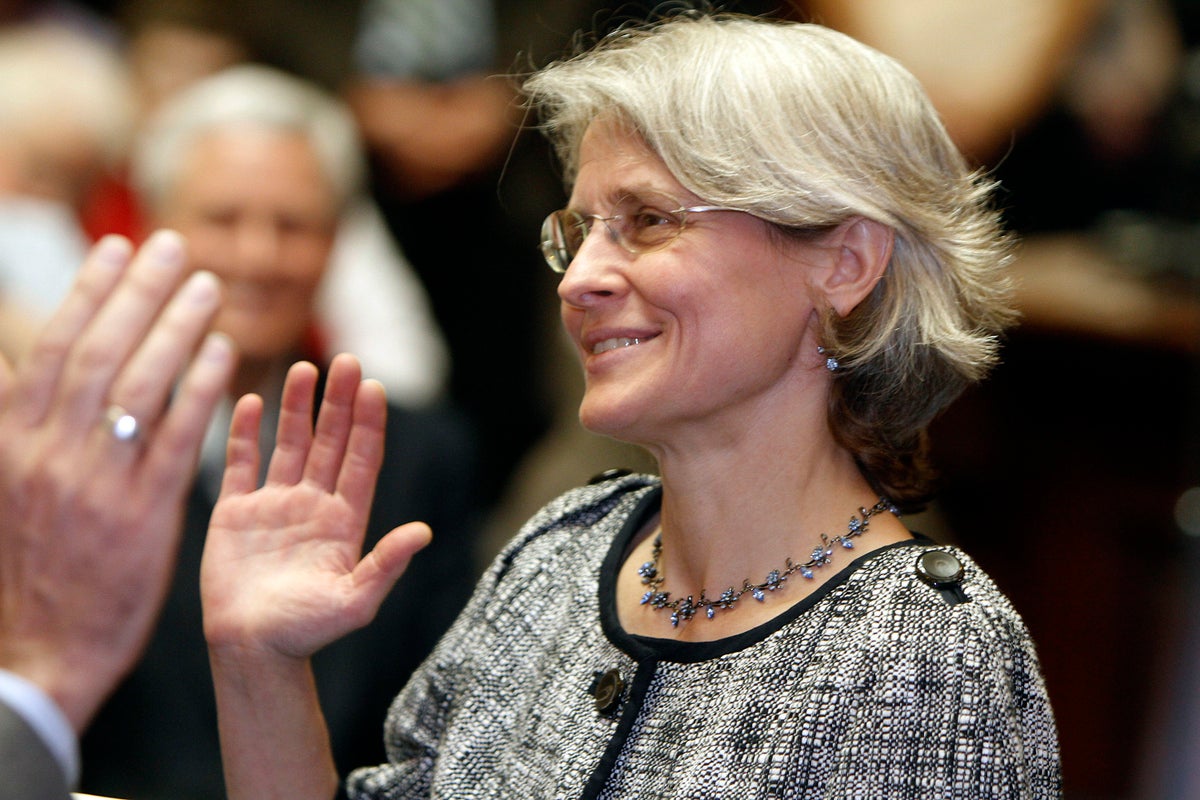
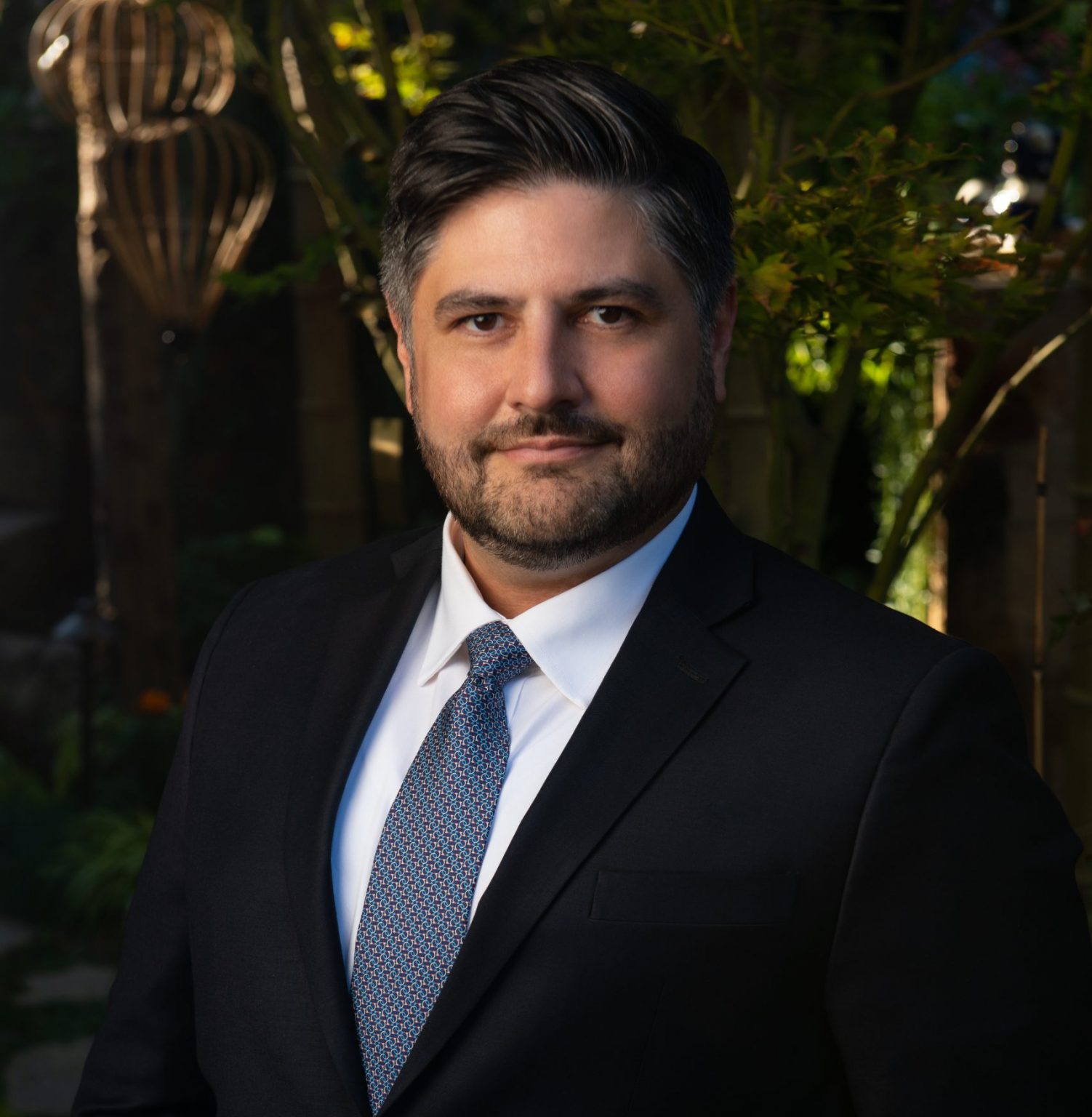
Though someone must lose in nearly every court case,
what is critical is that everyone feels that they had
their day in court, that their arguments were
heard and fairly considered. But it’s hard for people to
have that faith when the bench lacks the perspective of
a marginalized community that has frequently been denied
equal rights under the law.
Many LGBTQ people who interact with the judicial system
do not feel they have equal access to justice. Studies
in a number of states have consistently shown that LGBTQ
litigants, witnesses and jurors report negative
interactions with the court system, including
prejudicial comments and actions toward LGBTQ people.
How they are treated and the negative things they hear
in courtrooms, as well as who they see (or don’t) on the
bench change courtroom culture and the perception of
justice.
Beyond the issue of public trust in the legal system,
diversity also improves decision-making. Research from
the business world documents that having diverse teams
in general can lead to more factual, careful and
creative decisions. LGBTQ-supportive policies and
workplace environments lead to better job commitment and
satisfaction, workplace relationships, health outcomes
and productivity among LGBTQ employees, all victories
for organizations.
Southern Poverty Law Center
Lavender Law
Human Rights Campaign
National LGBTQ Bar Association
Lambda Legal
Gay & Lesbian Advocates
& Defenders
American Civil Liberties Union
Immigration Equality
Out
Right International

And research has specifically shown that diversity in
the judicial decision-making process affects the
development of the law. One study of outcomes in civil
rights cases found that plaintiffs were twice as likely
to prevail if a female judge was on the appellate panel
hearing the case, indicating that even if the panel was
majority male, male judges were likely to view a case
differently if one female judge participated in the
deliberations.
Indeed, despite the common portrayal of lone judges
proclaiming from the bench, the law is actually shaped
over time by many judges in conversation with one
another. Whether considering precedent written by other
judges, reviewing the decisions of lower courts in the
appellate courts or collaborating on panels, judges do
not work in isolation.
Just as Justice Ruth Bader Ginsburg referenced her
experience as a 13-year-old girl to evaluate the harm
caused by a strip search of a female student while at
school, and Justice Sonia Sotomayor’s approach to police
stops has been informed by hearing her brother get “the
talk” that Black and brown parents routinely give their
sons, LGBTQ judges will also bring their life
experiences to the collaborative process that decides
cases and develops the law.
[Source: Brad
Sears, Williams Institute at the UCLA School of Law, LA
Times, Oct 2021]
Anti-LGBTQ Laws Are Being Blocked in Federal Courts
Across the Country
SPLC: LGBTQ Rights for Students at School
LGBTQ Rights: 50 Years After Stonewall
Info:
Career
and Workplace Issues
Gay High
Schooler Suspended for Wearing Nail Polish
In Gay We Trust: Queer Liberation is Far From Over
Mapping LGBTQ Equality in America
Washington Post: State Efforts to Limit LGBTQ Rights
LGBTQ Bar: The
Gay Panic Defense
Info: LGBTQ Discrimination
Sexual Harassment
Explained
Victory for
Transgender Student: Supreme Court
Declines to Hear Bathroom Dispute
In June 2021, the United States Supreme
Court declined to hear Gloucester County
School Board v. Grimm, the case of a
former Virginia high school student,
Gavin Grimm, who was denied the right to
use the facilities that matched his
gender identity. The ruling by the US
Court of Appeals for the Fourth Circuit,
which upheld a district court ruling in
favor of Gavin affirming the right of
transgender students to use the
facilities that match who they are,
stands.

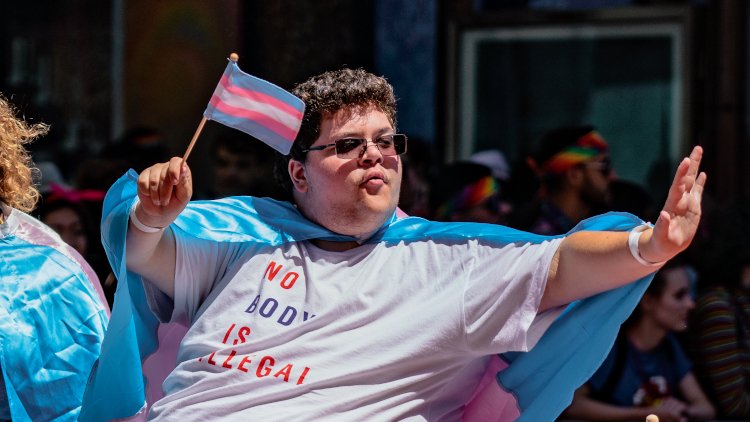
Lambda Legal Counsel and Students’
Rights Strategist, Paul D. Castillo, has
issued the following statement:
“This is an incredible victory for Gavin
Grimm and transgender students’ right to
be themselves at school. There should be
no doubt that federal law requires
schools to protect all students. Courts
all over the country, as well as the
federal government have made crystal
clear that LGBTQ students are protected
by federal law and have a right to an
equal education, to be protected against
harassment and discrimination, and to a
school environment where they can be
their authentic selves.
“Congratulations to Gavin Grimm and the
ACLU, who fought for six years so that
Gavin and all transgender students would
be treated with the dignity and respect
that they deserve. This year, state
legislatures across the country
introduced a record-breaking number of
bills aimed at hurting transgender young
people and their ability to play on
teams and access gender affirming health
care. Gavin’s persistent fight for the
rights of transgender young people
stands as a reminder that the fight is
far from over; he is a beacon of hope.
Thank you, Gavin.”
[Source: Paul D. Castillo, Lambda Legal,
June 2021]
Advocate: SCOTUS Decision on Trans Youth
Gavin Grimm is Major LGBTQ Victory
Victory for Transgender Student: Supreme Court Declines
to Hear Bathroom Dispute
Trans Youth
Rights: Not About Bathrooms or Women's Sports
Boston Globe: No God-Given Right to Discriminate Against
LGBTQ People
ACLU: End the Use of Religion to Discriminate
Lambda Legal: The Notion of Religious Exemption
HRW: Religious Exemption and Discrimination Against
LGBTQ People
Trump's Judicial
Appointments Will Impact LGBTQ Rights Beyond Presidency
US Supreme Court Protects LGBTQ Workers Rights
29 States to Ban Transgender Youth in
Sports
"There's no room for transphobia on the
court, on the track, on the field,
anywhere.
Every kid deserves the opportunity to
play sports."
-Lambda Legal
North Carolina Republican lawmakers
introduced a bill in March 2021 that
would bar transgender students in middle
and high schools and colleges from
competing on sports teams that match
their gender identity. The bill, which
legislators introduced in the North
Carolina House of Representatives, makes
the state the 29th to consider such a
measure in 2021, according to the
American Civil Liberties Union.
One of the bill’s sponsors, Republican
Rep. Mark Brody, said that he introduced
the bill to prevent cisgender female
athletes from being “pushed out of
female sports, and all of their records
are broken, scholarships lost and
benefits of excelling are diminishing
before this is addressed,” though he
acknowledged that he knew of no such
incidents in North Carolina.
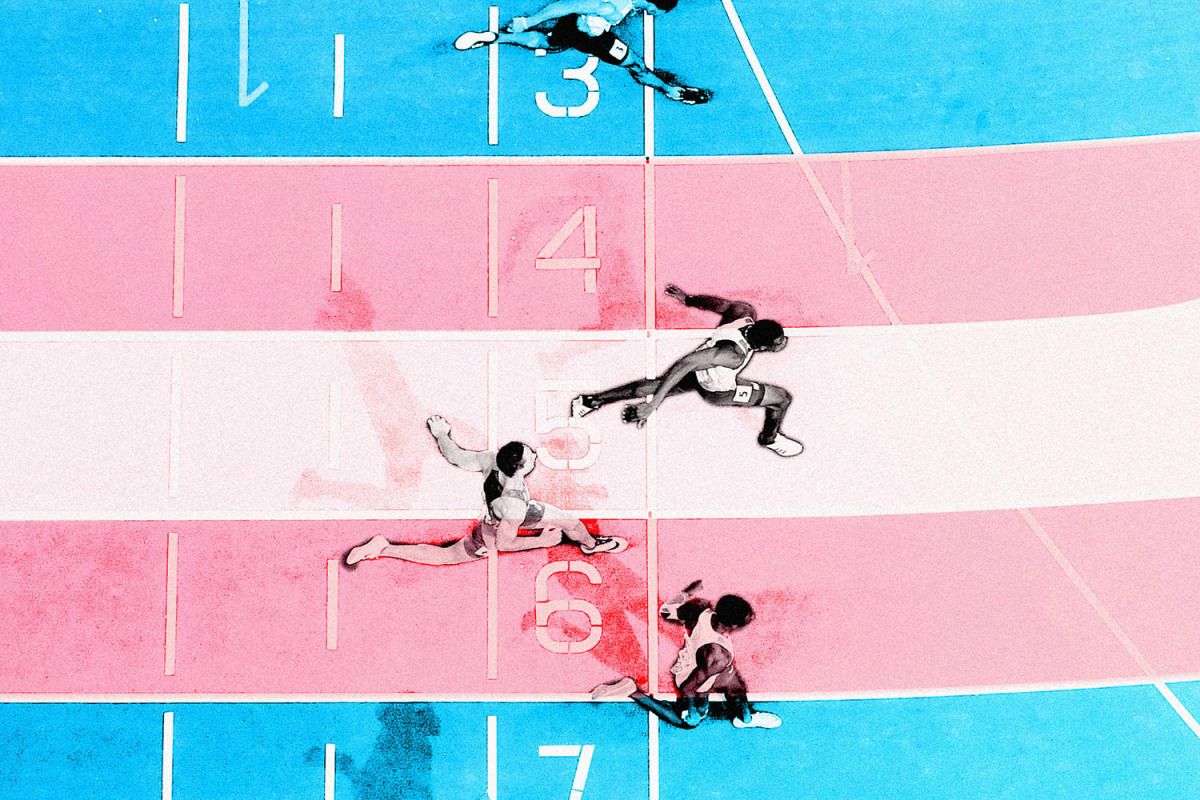
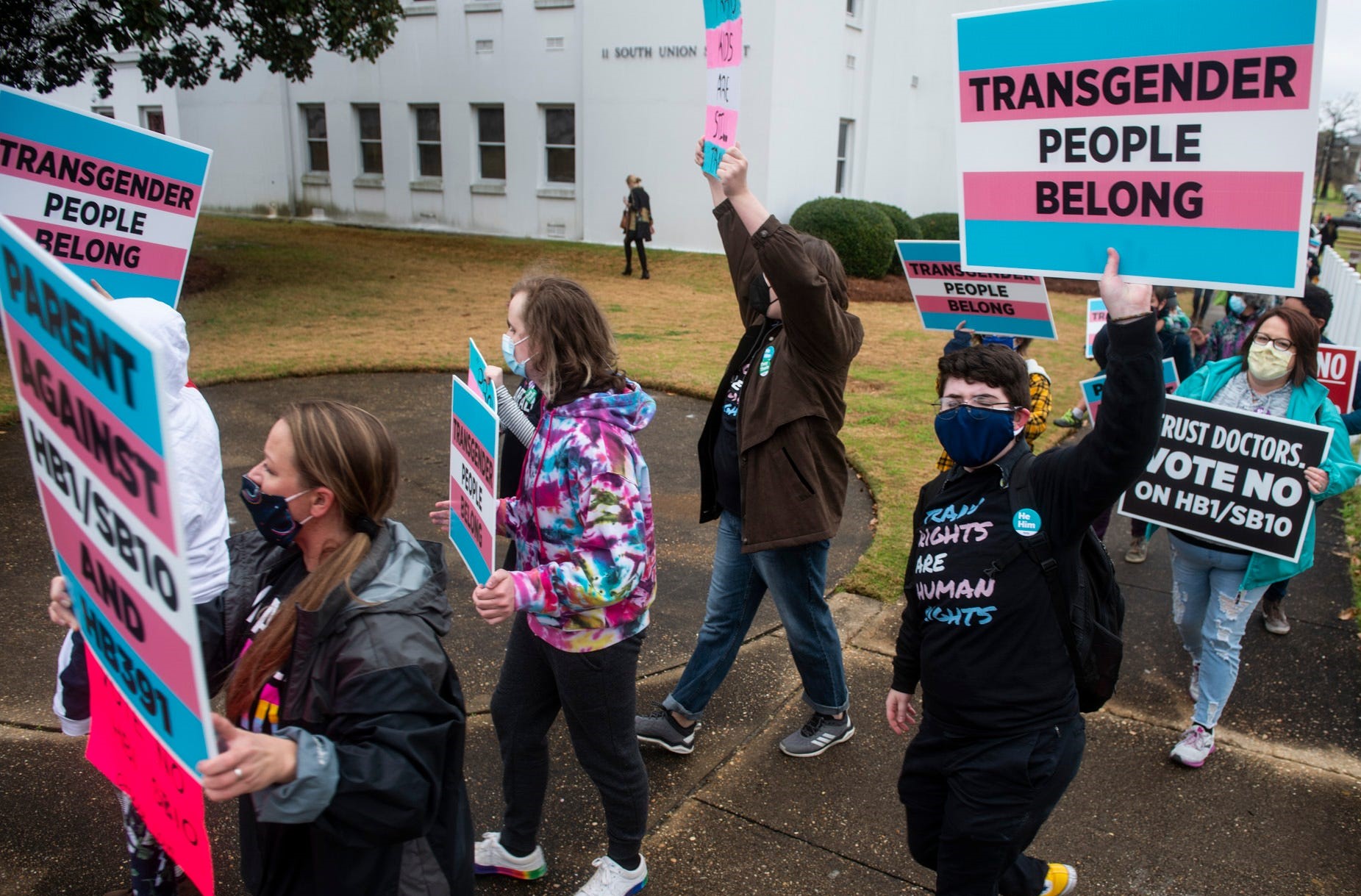
New Poll: 73 Percent of
People Support Trans Kids in Sports
Mother Testifies Against
Anti-Trans Legislation in Texas
Father of Trans Daughter Testifies Against
Trans Youth Athlete Ban
Attack After Attack:
Trans Youth Speak Out on Health and
Sports Bills Aimed at Them
There have been 84 bills filed this
legislative session that target
transgender people, according to the
ACLU. Most bills have focused on school
extracurricular sports teams and
preventing doctors from providing
gender-affirming medical care to people
under the age of 18.
North Carolina’s bill comes five years
after the state passed HB2, also known
as the “bathroom bill,” in 2016. That
bill required North Carolinians to use
restrooms that matched their sex
assigned at birth, rather than their
gender identity.
Quickly, business groups spoke out
against HB2, which had a negative
economic impact for the state. The NCAA,
which regulates college sports, withdrew
championship games from the state, and
the NBA stripped Charlotte of hosting
its All-Star Game until the law was
repealed. Eventually, the legislature
repealed the aspects of the law
pertaining to use of bathrooms in 2017.
“This anti-transgender bill is an
outlier in North Carolina, and it
doesn’t reflect where we are as a
state,” Allison Scott, director of
impact and innovation at the Campaign
for Southern Equality, said. “We have
come so far since the days of HB2, and
we’re better off for it: LGBTQ people
feel safer, business leaders are
becoming more comfortable investing here
and our communities are more inclusive
and respectful. It pains me to see some
lawmakers, egged on by extreme
anti-transgender activists running a
coordinated national attack on trans
youth, trying to drag us back into an
era of discrimination.”
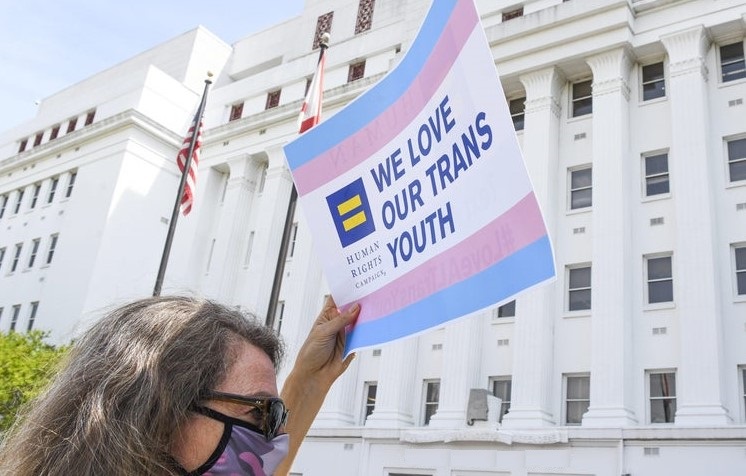
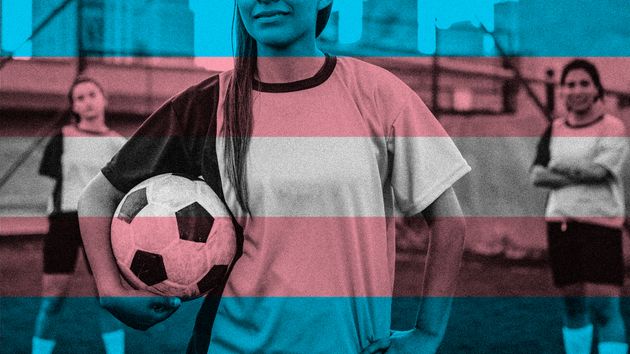
Arkansas Teachers Fear
for Their Trans Students
Record Number of Anti-Trans Bills
Introduced in States This Year
29 States File Bills
to Ban Trans Athletes
in Sports
Police Officer Defends
Trans Daughter Against Anti-Trans Legislation
The North Carolina High School Athletic
Association currently has a policy that
allows for transgender students to
compete on teams that match their gender
identity. Students must submit a Gender
Identity Request Form that allows them
to be cleared to compete by the NCHSAA.
“The NCHSAA studied the issue for over a
year, looking at policies in other
states, talking with families, listening
to medical professionals and
coordinating with the athletics programs
of colleges and universities,” Craig
White, supportive schools coordinator at
the Campaign for Southern Equality, said
about the policy.
North Carolina’s proposal is similar to
the Fairness and Women’s Sports Act,
which was passed in Idaho in 2020.
Republican state Rep. Barbara Ehardt,
the author of Idaho’s bill, confirmed
that the Alliance Defending Freedom
helped co-write it. Since the bill’s
passage, a flood of similar bills have
emerged, and the ADF has been linked to
a group pushing model legislation as
part of the Promise to America’s
Children initiative, which is backed by
a coalition of right-wing groups.
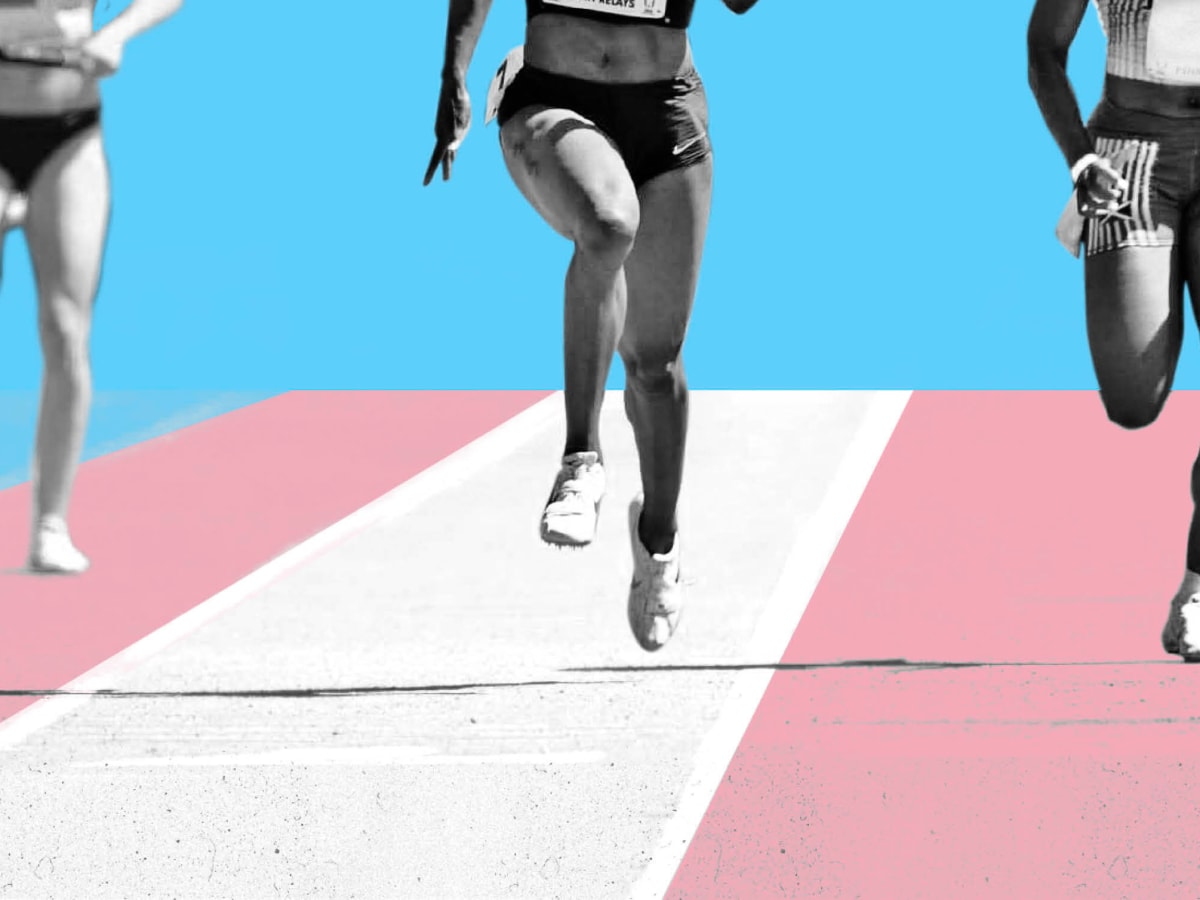
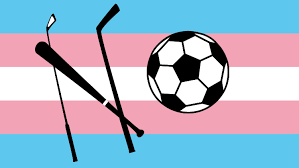
So far, Mississippi Gov. Tate Reeves is
the only governor to have signed a trans
athlete ban into law in 2021. On March
4, Reeves said the law would “protect
young girls from being forced to compete
with biological males for athletic
opportunities.” The sponsor of
Mississippi’s bill, state Sen. Angela
Hill, told the Associated Press that she
had been approached by “numerous
coaches” who felt there was a need for a
policy “because they are beginning to
have some concerns of having to deal
with this.” Neither Hill nor other
supporters of the bill presented
evidence of transgender athletes
competing in Mississippi schools or
universities. Reeves and Hill are
Republicans.
In March 2021, South Dakota Gov. Kristi
Noem returned a similar bill to the
state legislature asking for changes
before she could sign it into law. The
changes centered around the bill
including collegiate athletes, which
could trigger a potential challenge by
the NCAA. Noem said during a press
conference that South Dakota was
unlikely to win any challenge from the
NCAA, given that it is a private
organization. She then introduced an
initiative called Defend Title IX Now,
which aims to bring together multiple
states to challenge the NCAA’s policy.
[Source: Sydney Bauer, NBC News, March
2021]
Lambda Legal: Promo
Boston Globe: No God-Given Right to Discriminate Against
LGBTQ People
ACLU: End the Use of Religion to Discriminate
Lambda Legal: The Notion of Religious Exemption
Wedding Photographer Loses Case Against
NY's Antidiscrimination Laws
HRW: Religious Exemption and Discrimination Against
LGBTQ People
Natl LGBTQ Task Force: LGBTQ Discrimination Masquerading
as Religious Freedom
LGBTQ Rights in the United States
Equaldex: LGBTQ Rights Across the World
Out
Right International
Arkansas Lawmakers Ban Treatment for
Transgender Youth
In April 2021,
The Arkansas legislature overrode Gov.
Asa Hutchinson’s veto of a bill denying
gender-affirming health care to minors,
making Arkansas the first state with
such a law. And American Civil Liberties
Union officials said they were preparing
a lawsuit.
Hutchinson had vetoed House Bill 1570,
saying it was overly broad. It bans not
only gender-confirmation surgeries
(which doctors do not recommend for
minors anyway) but also hormone
treatments and puberty blockers. “If
this was just to ban gender reassignment
then I would support it, but those who
are taking treatment are not
grandfathered in, this is not the right
path to put them on,” the Republican
governor said. “While the population of
minors dealing with this is an extreme
minority, this could lead to significant
harms from suicide to drug use to
isolation,” he added.
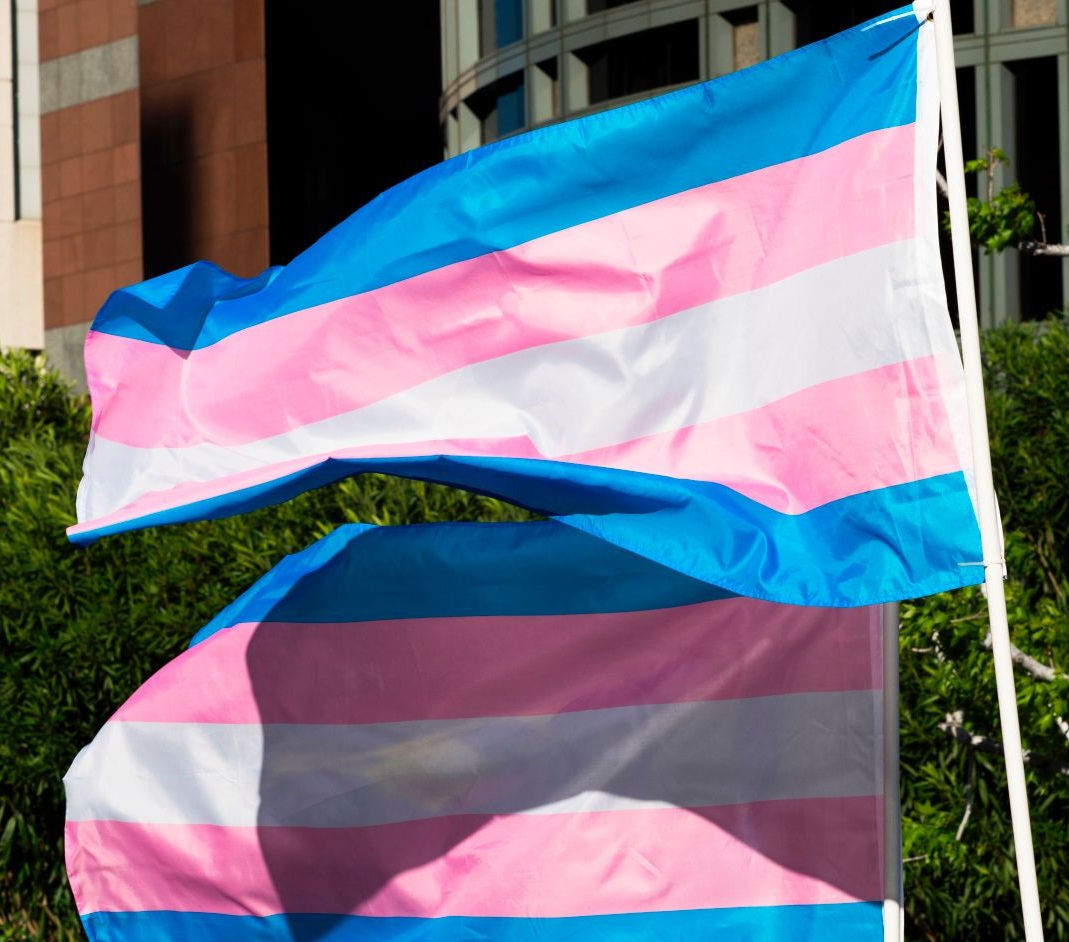
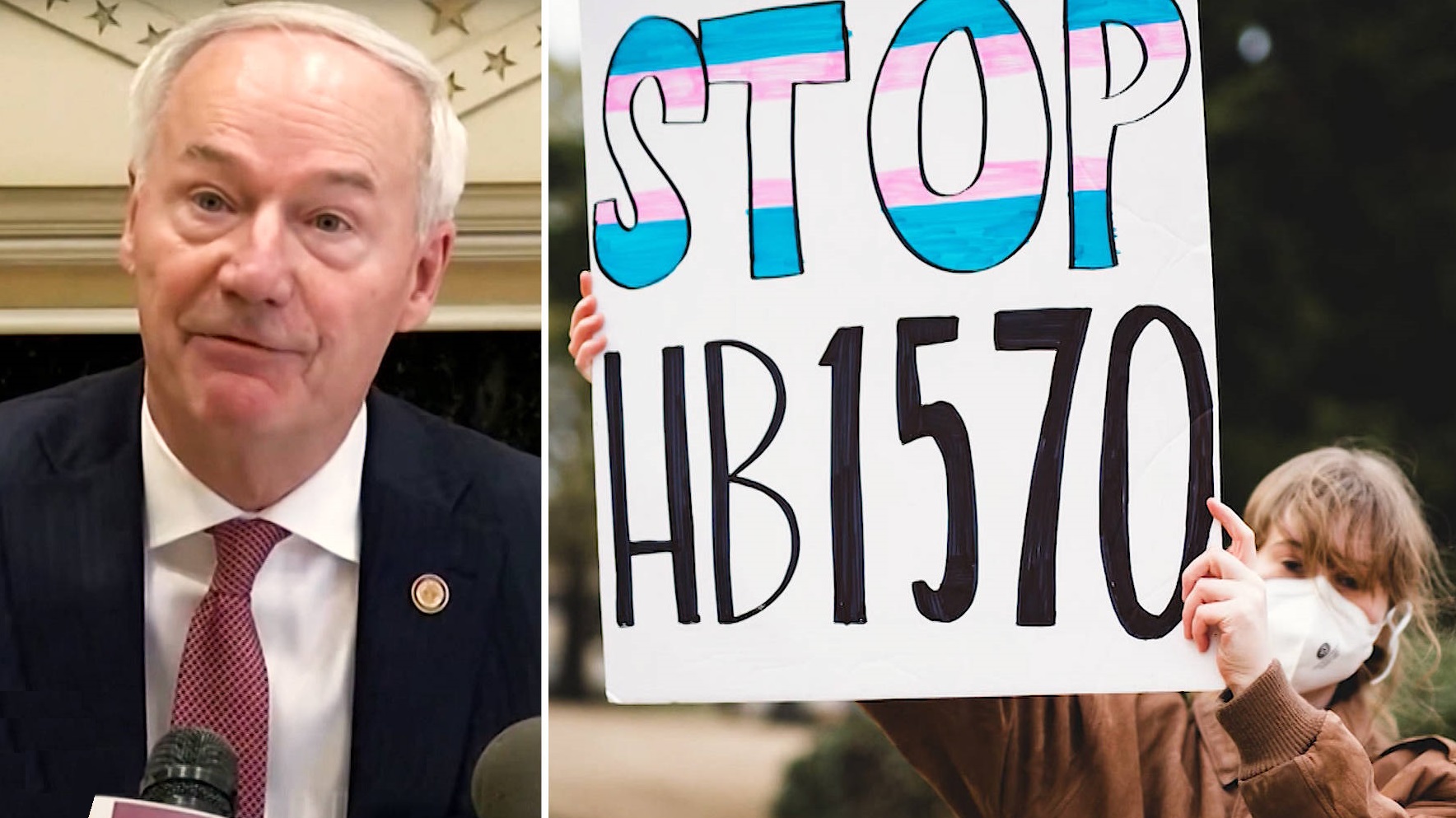
NBC News: Arkansas
Lawmakers Enact Trans Youth Treatment Ban
Advocate: Arkansas Bans Gender-Affirming
Care for Trans Minors
LGBTQ Nation: Arkansas Lawmakers Ban
Gender-Affirming Care for Trans Youth
Arkansas Teachers Fear
for Their Trans Students
But the Arkansas House of
Representatives voted 71-24 to override
Hutchinson’s veto, and the Arkansas
Senate voted 25-8 to do so. Civil rights
groups immediately condemned the
legislature’s action. “Today Arkansas
legislators disregarded widespread,
overwhelming, and bipartisan opposition
to this bill and continued their
discriminatory crusade against trans
youth,” said a statement from Holly
Dickson, executive director of the ACLU
of Arkansas. “As Governor Hutchinson
noted in his veto message, denying care
to trans youth can lead to harmful and
life-threatening consequences. This is a
sad day for Arkansas, but this fight is
not over — and we’re in it for the long
haul. Attempting to block trans youth
from the care they need simply because
of who they are is not only wrong, it’s
also illegal, and we will be filing a
lawsuit to challenge this law in court.
We are hearing from concerned families
all over the state who are afraid about
the impact of this bill and others like
it. We are committed to doing all we can
to support these families and ensure
they know how to continue to fight for
their rights and get the care and
resources they need.
“No matter what these politicians do or
say, one thing has not changed: trans
youth are loved, they are seen, and we
will never stop fighting to defend their
dignity, their rights and their lives.
To everyone who spoke out against this
bill: now is the time to stay loud, not
only for trans lives, but for all the
fundamental rights that politicians are
hellbent on attacking.”
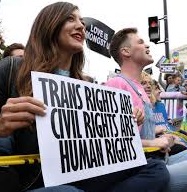
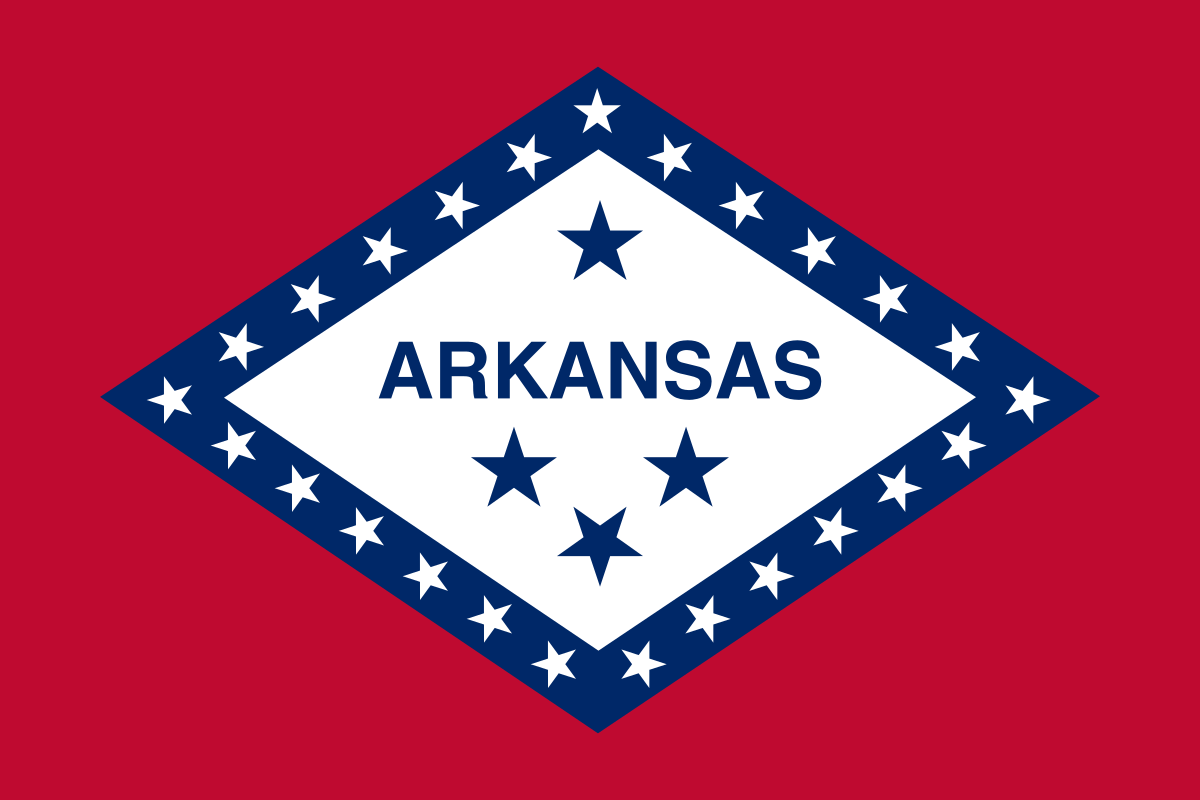
Record Number of Anti-Trans Bills
Introduced in States This Year
29 States File Bills to
Ban Trans Athletes in Sports
Police Officer
Defends Trans Daughter Against
Anti-Trans Legislation
New Poll: 73 Percent of
People Support Trans Kids in Sports
“The Arkansas Legislature has ignored
dozens of local doctors and national
medical experts, as well as trans youth
and their parents,” added Chase Stangio,
deputy director for transgender justice
with the ACLU’s LGBTQ & HIV Project.
“This bill will drive families, doctors
and businesses out of the state and send
a terrible and heartbreaking message to
the transgender young people who are
watching in fear. Gender-affirming care
is life-saving care and banning that
care will have devastating and in some
cases deadly consequences. Trans youth
in Arkansas: We will continue to fight
for you. The ACLU is preparing
litigation as we speak. ACLU supporters
from around the country spoke out
against this bill. We will always have
your back and will be relentless in our
defense of your rights.”
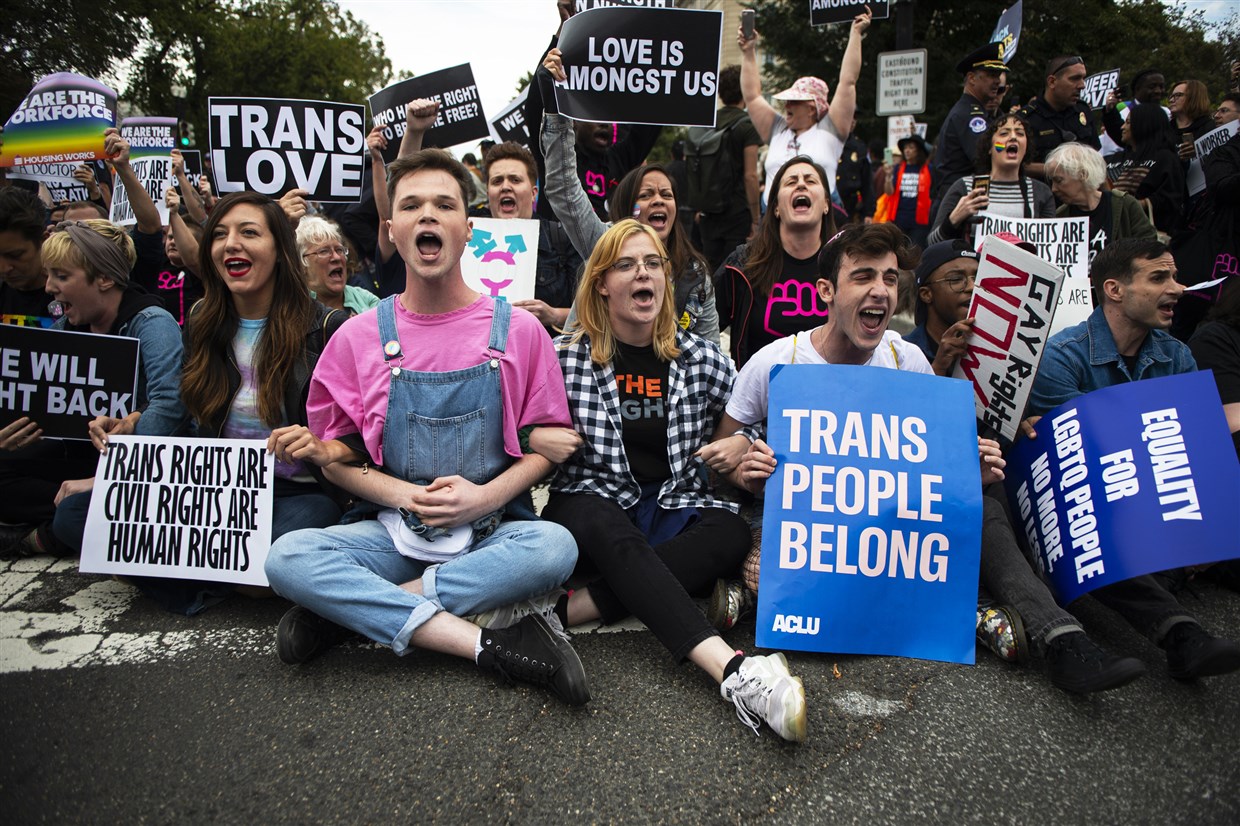
Mother Testifies Against
Anti-Trans Legislation in Texas
Father of Trans Daughter
Testifies Against Trans Youth Athlete Ban
Attack After Attack:
Trans Youth Speak Out on Health and
Sports Bills Aimed at Them
Meanwhile: In North
Carolina
Sam Brinton, vice president of advocacy
and government affairs for the Trevor
Project, issued this statement: “To the
transgender and nonbinary youth of
Arkansas, please know that you deserve
love and support and to be affirmed in
your gender identity. We will not stop
fighting until this cruel and illegal
ban is overturned. “Governor Hutchinson
listened to trans youth and their
doctors, the state legislature clearly
did not. We knew this override could
happen, but it is nonetheless
devastating because we also know it
could have deadly consequences. It is
not extreme or sensational to say that
this group of young people, who already
experience disproportionate rates of
violence and suicide attempts, would be
put at significantly increased risk of
self-harm because of legislation like HB
1570 pushing them farther to the margins
of society.”
Similar bills are pending in several
other states.
[Source: Trudy Ring, Advocate Magazine,
April 2021]
Advocate: The Gay and
Trans People Who Took Their Cases to the Supreme Court
LA Times: Supreme Court
Ruling Protects LGBTQ Rights
ABC News: Supreme Court
Bans LGBTQ Employment Discrimination
Reuters: Supreme Court Endorses LGBTQ Worker Protections
CBS News: Existing Federal Civil Rights Laws Protect
LGBTQ Workers
In Gay We Trust: Queer Liberation is Far From Over
Advocate: Supreme Court Rules LGBTQ Discrimination is
Illegal
Widespread Discrimination Continues for LGBTQ Community
Mapping LGBTQ Equality in America
Washington Post: State Efforts to Limit LGBTQ Rights
Info: LGBTQ Discrimination
Sexual Harassment Explained
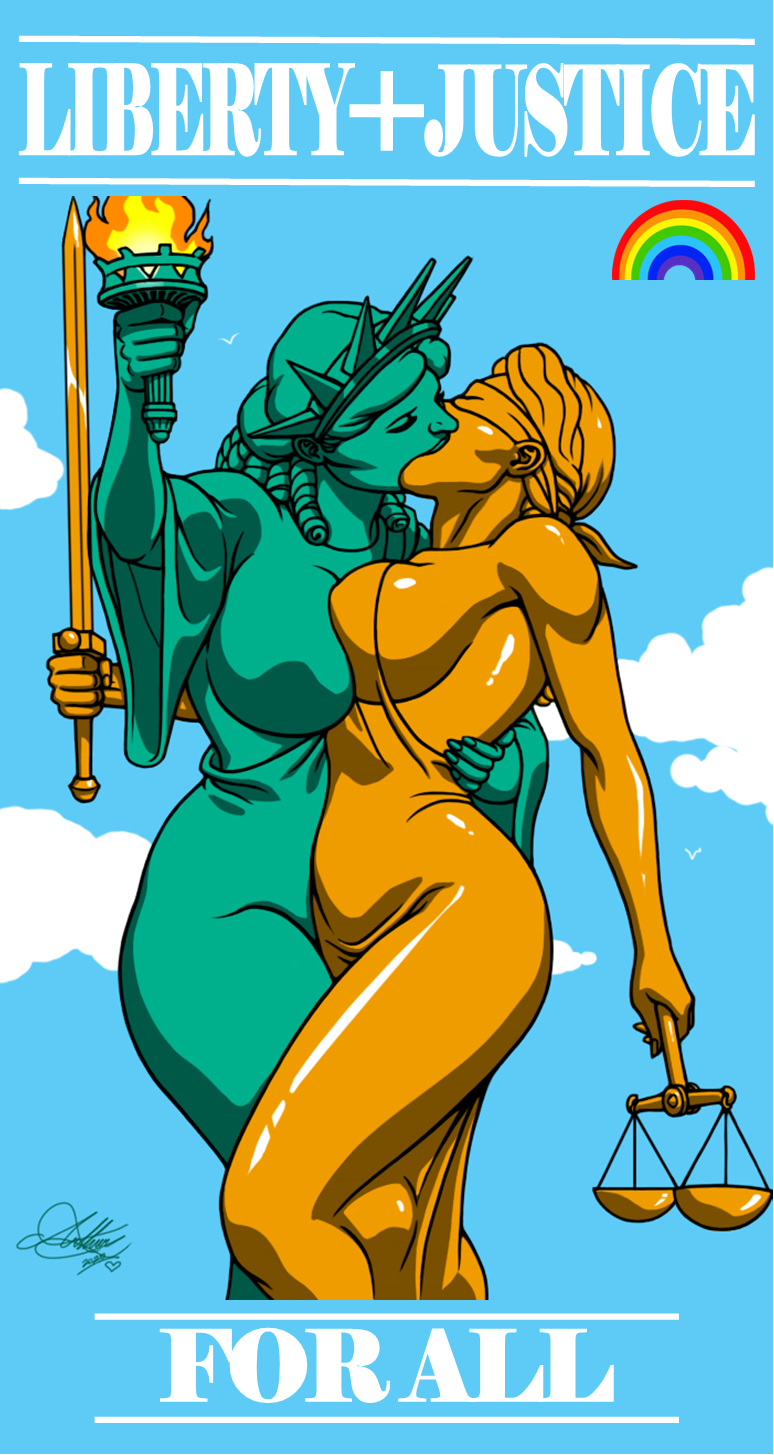
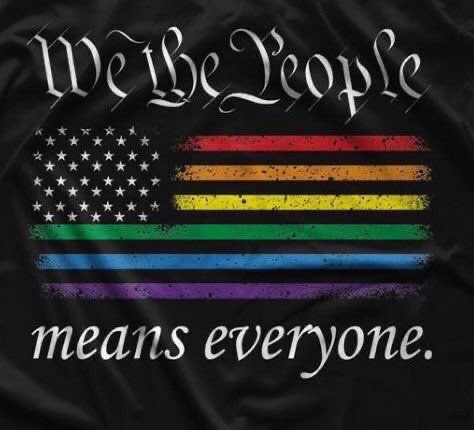
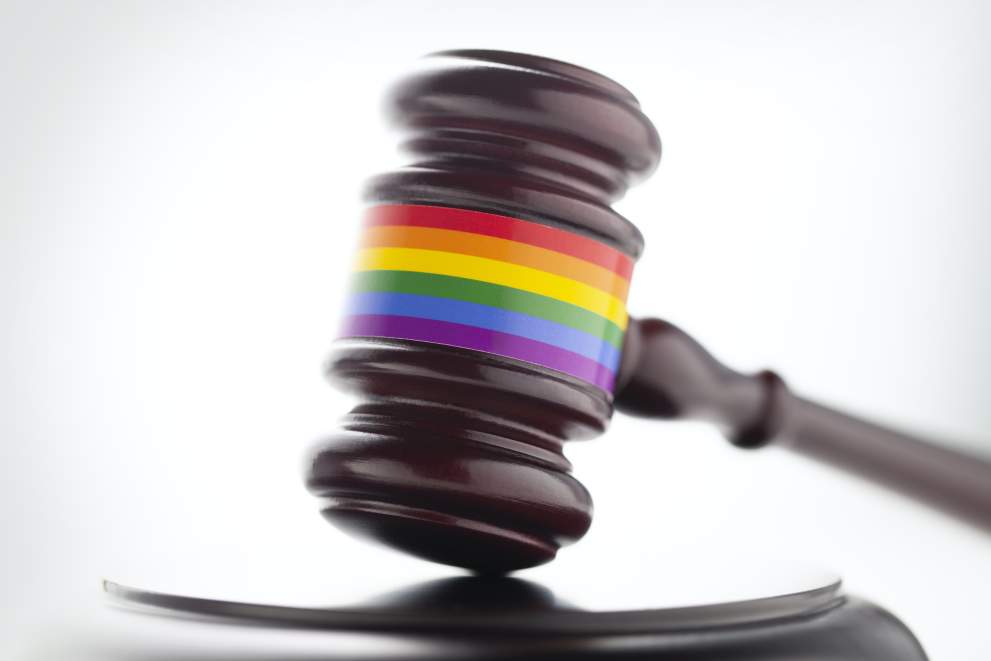
No God-Given Right to Discriminate Against LGBTQ People
Senate Republicans are standing in the way of Congress
acting according to the will of the majority of
Americans. Protecting people from discrimination should
not be a partisan issue.
The good news is that, for the American public, it’s
not. A recent PRRI poll found that 83 percent of
Americans (which includes strong majorities of
Republicans, Democrats, and independents) support
nondiscrimination laws that protect gay, lesbian,
bisexual, and transgender people from discrimination.
Still, there is an obstacle standing in the way of
Congress acting according to the will of the majority of
Americans and passing a federal law that does just that:
the claim by some Republicans and religious groups that
LGBTQ rights stand in conflict with religious rights.
US Senator Mitt Romney of Utah is among the Republicans
voicing opposition to the House-passed Equality Act,
which would extend the current federal law barring
discrimination on the basis of race, religion, and other
protected categories to also cover sexual orientation
and gender identity. Romney cited the lack of “strong
religious liberty protections” in the bill’s language as
reason for his opposition.
Religious-based groups such as the Southern Baptist
Convention raise more hyperbolic alarms, calling the
legislation “the most significant threat to religious
liberty ever considered in the United States Congress.”
The truth is that few rights in America have more robust
protections under the Constitution, as well as federal,
state, and local laws, than the right to believe,
worship, and express religious views as one wishes.
Protecting sincerely held religious beliefs is a pillar
of American law, as it should be. Nothing about a law
shielding people from bigoted policies and practices
stands in the way of that.
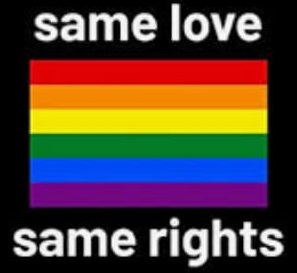
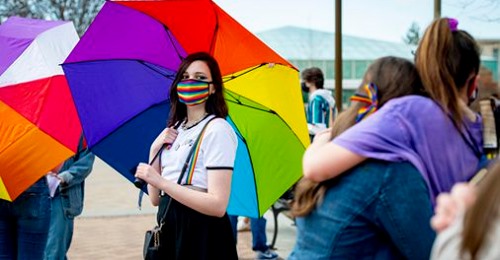
US Supreme Court Protects LGBTQ Workers Rights
Gay High
Schooler Suspended for Wearing Nail Polish
LGBTQ Rights by Country or Territory
In Gay We Trust: Queer Liberation is Far From Over
Wedding Photographer Loses Case Against
NY's Antidiscrimination Laws
Timeline: American Gay Rights Movement
Equaldex: LGBTQ Rights Across the World
In fact, the Equality Act would leave in place an
exemption for religious entities that would allow them
to, for example, give preference to people of their
faith in employment and housing decisions. But it won’t
allow religion to be used as a sword to infringe on the
protected rights of others — especially when such
claims, like the false assertion that the Bible’s story
of the curse of Ham justified slavery and racial
bigotry, are unfounded.
And that is why the Equality Act’s provision barring the
Religious Freedom Restoration Act from being used as a
defense for discriminatory conduct (the very provision
drawing the ire of Republicans) is so crucial. That
statute, passed by Congress and signed into law in 1993
by President Bill Clinton, was meant to protect
religious liberties (particularly the rights of
religious minorities) and enjoyed broad support at the
time of its passage.
But in the nearly two decades since, the law has been
stretched far beyond its intended purpose, serving as a
basis for actions such as private companies denying
spousal benefits to same-sex couples or adoption
agencies refusing to consider gay or transgender people
as potential parents. With the Equality Act, Congress
can make clear it never intended to allow organizations
or individuals to claim a God-given right to
discriminate. “The government has a compelling interest
in enforcing nondiscrimination law, and it’s not
over-broad to say you can’t discriminate if
discrimination is the problem the law is addressing,”
said Jennifer C Pizer, senior counsel and director of
law and policy at the nonprofit advocacy organization
Lambda Legal.

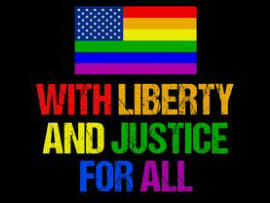
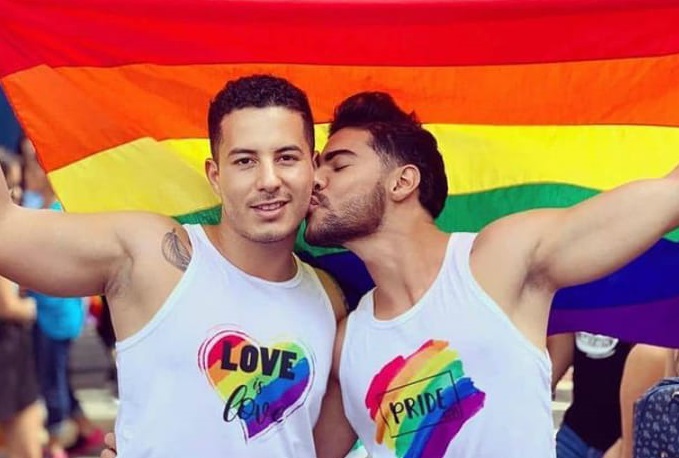
CBS News: Supreme Court
Ruling Protects LGBTQ Workers
SCOTUS Pro-LGBTQ Ruling:
Activists, Politicians, Celebs Rejoice
The Atlantic: Gay Rights and the Legal Mess Left Behind
Immigration Equality: LGBTQ Immigration Rights
Info: Money
and Financial Matters
Even Justice Neil Gorsuch (one of the Supreme Court’s
most conservative jurists) noted that there is ample
room for LGBTQ protections and religious rights to
coexist, in a 6-3 decision last year extending federal
employment discrimination protections to including
sexual orientation and gender identity. “We are also
deeply concerned with preserving the promise of the free
exercise of religion enshrined in our Constitution; that
guarantee lies at the heart of our pluralistic society,”
Gorsuch wrote for the majority. “But worries about how
Title VII may intersect with religious liberties are
nothing new.” Gorsuch underscored that the existing
federal law religious rights exclusion and the First
Amendment already provide religious protections.
Laws protecting LGBTQ people from discrimination are
already in place in 23 states and the District of
Columbia. But that still leaves an estimated nearly 4
million people in America legally unprotected from
biased treatment because of their sexual orientation or
gender identity. Pizer said a Lambda Legal report
released this week detailing more than 4,000 claims of
discriminatory conduct based on sexual orientation or
gender identity received last year by the organization’s
help line makes clear that the need for protections is
real. “It reflects the real problems people are having,”
Pizer said, from discrimination in the workplace and
difficulty obtaining identification documents to being
targets of harassment and violence.
But Americans are already on board with granting them
protections that they need. As a person of faith, I can
only pray that members of the Senate vote to do right by
them.
[Source:
Kimberly Atkins, Boston Globe, March 2021]
LGBTQ Nation: Supreme Court Rules in Favor of LGBTQ
Rights in Landmark Decision
Outlawed: Anti-LGBTQ Laws Around the World
SPLC: LGBTQ Rights for Students at School
LGBTQ Rights: 50 Years After Stonewall
Info:
Career
and Workplace Issues
Advocate: Supreme Court Rules LGBTQ Discrimination is
Illegal
Widespread Discrimination Continues for LGBTQ Community
Mapping LGBTQ Equality in America
Equaldex: LGBTQ
Rights Across the World
Washington Post: State Efforts to Limit LGBTQ Rights
Info: LGBTQ Discrimination
Sexual Harassment Explained

Supreme Court Rules
in Favor of LGBTQ Employment Rights
On June 15, 2020, the US Supreme Court issued a landmark
decision, penned by Neil Gorsuch, a conservative justice
appointed by President Trump, deciding that “An employer
who fires an individual merely for being gay or
transgender violates Title VII of the 1964 Civil Rights
Act.” And Justice Neil Gorsuch went on to say, “An
individual’s homosexuality or transgender status is not
relevant to employment decisions. That’s because it is
impossible to discriminate against a person for being
homosexual or transgender without discriminating against
that individual based on sex.”
Everyone from Barack Obama and Pete Buttigieg to Black
Lives Matter and the NCAA celebrated the momentous
Supreme Court decision on LGBTQ workplace
discrimination. And Americans across the nation
celebrated this historic ruling. Kamala Harris
said, "This is a major victory for LGBTQ rights. No one
should be discriminated against because of who they are
or who they love." Jared Polis said, "No matter who you
are or who you love your work is valued in the United
States. Thank you to the Supreme Court for making the
right decision for equality, inclusivity." Janet Mock
said, "A victory hard won in the courts and on the
streets. Grateful to the lawyers, organizers and
activists but most grateful to those who had to live
stealth or closeted, who lost jobs for living their
truth, who left parts of themselves at their employers'
door." And Gerald Bostock said, "Today, we can go
to work without the fear of being fired for who we are
and who we love."
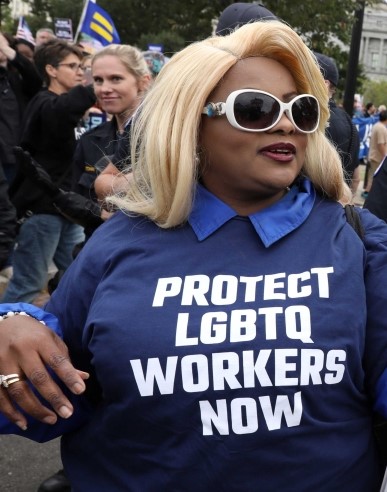
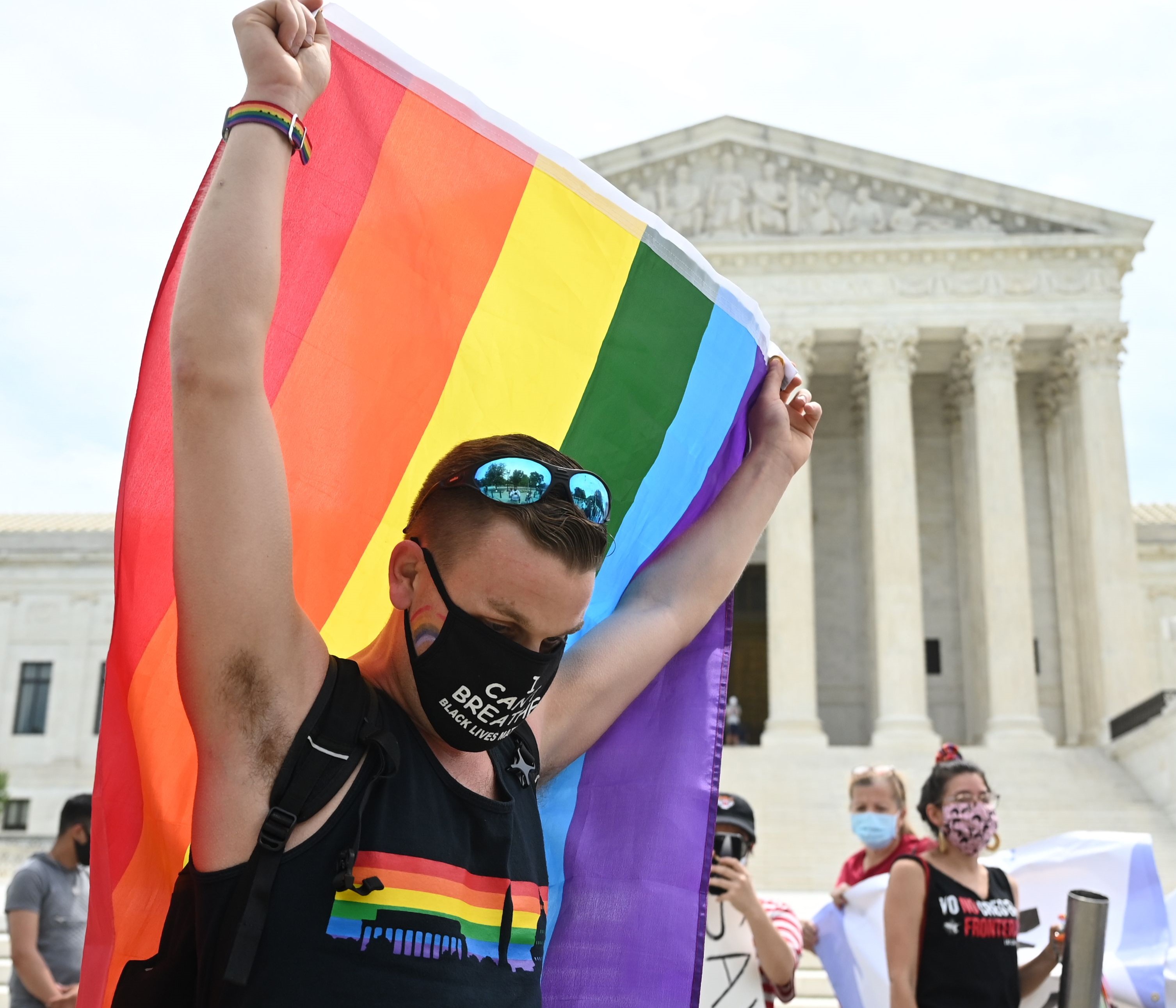
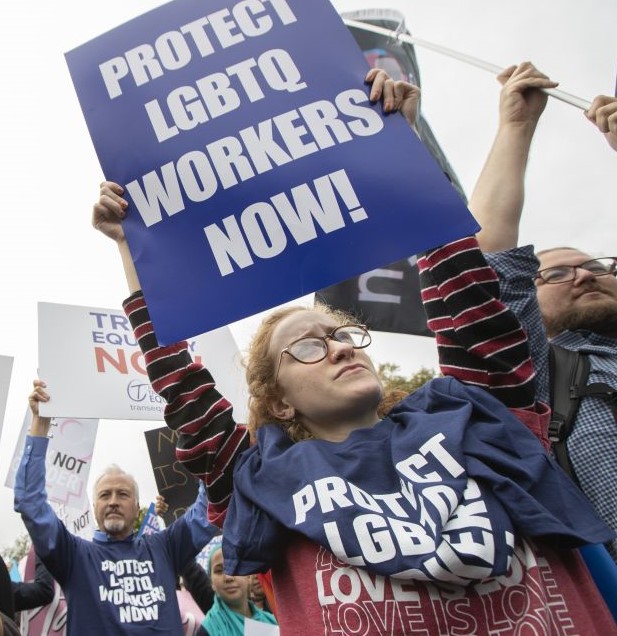
Supreme Court Landmark Decision: Illegal to Discriminate
Based on Sexual Orientation
The Atlantic: Gay Rights and the Legal Mess Left Behind
LGBTQ Rights: 50 Years After Stonewall
Info: Money
and Financial
Matters
Sexual Harassment Explained
Court Rules Yeshiva University Must Recognize LGBTQ
Student Group
If Abortion Rights Go, So Could Gay Marriage
Biden Announces
Two Judicial Nominees Who Are Lesbians
“Today, we must decide whether an employer can fire
someone simply for being homosexual or transgender. The
answer is clear. An employer who fires an individual for
being homosexual or transgender fires that person for
traits or actions it would not have questioned in
members of a different sex. Sex plays a necessary and
indistinguishable role in the decision, exactly what
Title VII forbids,” the decision reads. “An employer who
fires an individual merely for being gay or transgender
violates Title VII.”
“Those who adopted the Civil Rights Act might not have
anticipated their work would lead to this particular
result. Likely, they weren’t thinking about many of the
Act’s consequences that have become apparent over the
years, including its prohibition against discrimination
on the basis of motherhood or its ban on the sexual
harassment of male employees.”
“But the limits of the drafters’ imagination supply no
reason to ignore the law’s demands,” Gorsuch continued.
“When the express terms of a statute give us one answer
and extratextual considerations suggest another, it’s no
contest. Only the written word is the law, and all
persons are entitled to its benefit.” The ruling was
decided by a 6-4 vote. Gorsuch was joined
by Justices Elena Kagan, Sonia Sotomayor, Ruth Bader
Ginsburg, Stephen Breyer, and Chief Justice John
Roberts.
Southern Poverty Law Center
Lavender Law
Human Rights Campaign
National LGBTQ Bar Association
Lambda Legal
Gay & Lesbian Advocates
& Defenders
American Civil Liberties Union
Immigration Equality
Out
Right International
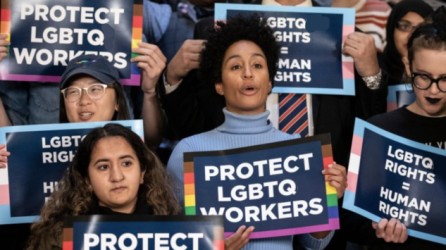
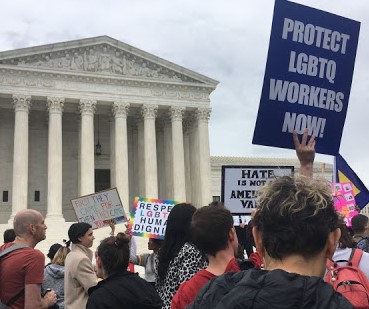
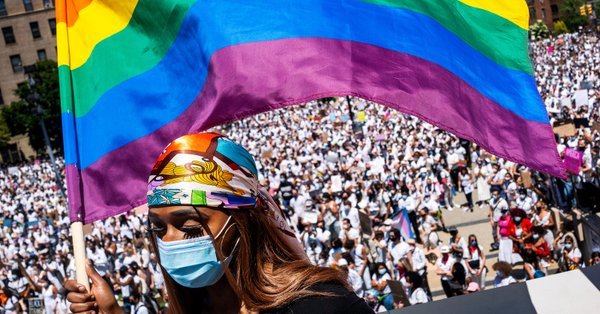
Some who
responded reminded us that this was just another step in
the long road to full equality. Pete Buttigieg said,
"As of sunup this morning, many parts of America did not
fully protect queer Americans from workplace
discrimination, despite the Civil Rights Act. This is a
major step. Make no mistake—a federal Equality Act is
still urgently needed. The struggle for equality did not
end with marriage, nor did it end today. Conversion
therapy persists. Black trans women are at grave risk
daily. The administration is rolling back protections at
every turn." And Senator Tammy Baldwin said, "The SCOTUS
6-3 decision is a huge step forward for LGBTQ equality
in America. But we must keep marching for full equality
for every LGBTQ American across our country and work to
pass the Equality Act in the Senate."
[Source: LGBTQ
Nation, June 2020]
Supreme Court Landmark Decision: Illegal to Discriminate
Based on Sexual Orientation
LGBTQ Nation: Supreme Court Rules in Favor of LGBTQ
Rights in Landmark Decision
Advocate: Supreme Court Rules LGBTQ Discrimination is
Illegal
LGBTQ Bar: The
Gay Panic Defense
The Case for Optimism About LGBTQ Rights
in the United States
ABC News: Historic Ruling
on LGBTQ Employment Discrimination
America's Reaction:
Supreme Court Ruling in Favor of LGBTQ Worker's Rights
NBC News: In Landmark Case, Supreme Court Rules in Favor
of LGBTQ Worker Protection
Huff Post: Supreme Court Says Firing Someone for Being
Gay is Wrong
CBS News: Supreme Court
Ruling Protects LGBTQ Workers
SCOTUS Pro-LGBTQ Ruling:
Activists, Politicians, Celebs Rejoice
It Seems Almost Unreal:
LGBTQ People Respond to Supreme Court Ruling
NPR: Supremes Court
Delivers Major Victory to LGBTQ Employees
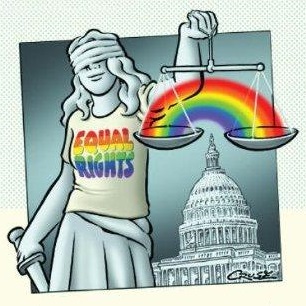
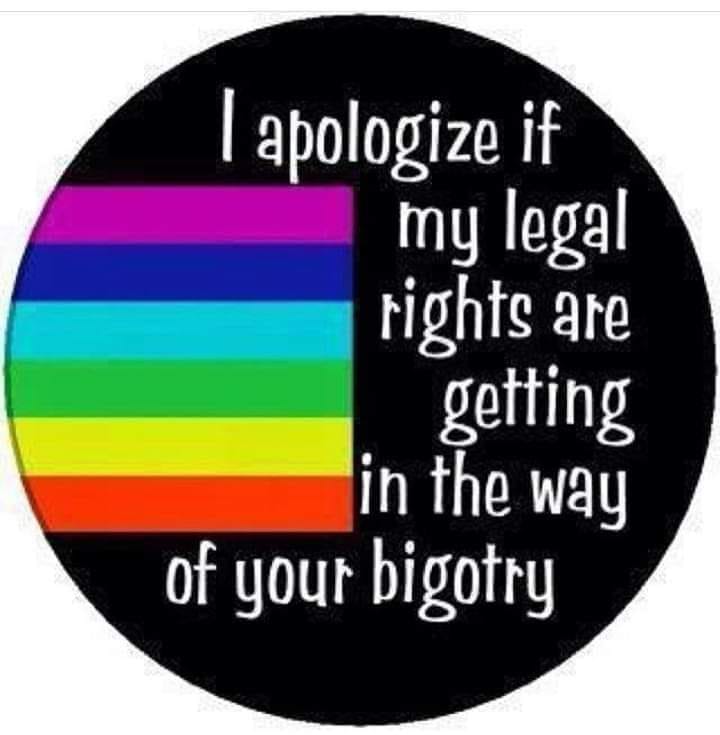
Legal Challenges for LGBTQ People
For many lesbian, gay, bisexual,
transgender, and queer people,
the massacre of 49 people at a
gay nightclub in Orlando were a
painful reminder that, despite
successes like the Pentagon’s
lifting the ban on military
service by transgender people
and the Supreme Court’s
legalization of same-sex
marriage, obstacles to
acceptance and equality remain.
We asked LGBTQ leaders to reflect on the challenges the
community still faces. Here is what they said:
Discrimination
“One of the main things we are doing is fighting against
the post-marriage backlash,” said Mara Keisling, the
executive director of the National Center for
Transgender Equality.
That has happened mainly at the state level, where more
than 200 anti-LGBTQ bills have been introduced so far
this year, said Russell Roybal, the deputy executive
director of the National LGBTQ Task Force.
Many state officials have used a religious freedom
argument to support denying services to LGBTQ people.
The legalization of same-sex marriage heightened the
daily risk of discrimination faced by many people, Mr.
Roybal said.
“In a lot of places, you can go to your county clerk and
get a marriage license and get married and then get
fired the next week because now you are openly gay,” he
added.



Twenty nine states lack anti-discrimination laws that
include sexual orientation or gender identity, and there
is no federal law protecting access to employment,
housing and public accommodation, like hotels or
restaurants, for LGBTQ people, he said.
In fact, some of the new state bills explicitly restrict
public accommodation, particularly those who are
transgender.
A North Carolina law passed in March made it illegal for
transgender people to use public restrooms that match
their gender identity. The law drew condemnation from
many artists, who boycotted the state, and from some
companies, which canceled plans to do business there.
Mississippi also drew swift criticism for a law allowing
business owners to refuse service to gay men, lesbians
and others based on the owners’ religious beliefs.
Rainbow Law
Immigration Equality
National Center for Lesbian Rights
Human
Rights Watch: LGBTQ Rights
Amnesty International: LGBTQ
Rights
Equaldex: LGBTQ
Rights Across the World
American Civil Liberties Union: LGBTQ Rights
Violence
“Violence in our community is a big problem,” said
Beverly Tillery, the executive director of the New York
City Anti-Violence Project, which studies anti-LGBTQ
violence and aids survivors.
“Ultimately there is still the feeling for some people
that LGBTQ people are less than and don’t matter, and
that it is OK to commit acts of violence against
them.”
There were 24 reported bias-motivated killings of LGBTQ
people in 2015, a 20 percent rise from the year before,
she said. Most of the victims were transgender and
gender nonconforming minorities.
That figure is likely to jump this year because of the
killings at Pulse nightclub in Orlando. The shootings
put gun control on the agenda of many LGBTQ advocacy
groups, Mr. Roybal said.
“Every LGBTQ person knows that our safety is not
guaranteed,” he said. “Although we don’t live in fear
and continue to be out and proud, it is still something
that kicks around at the back of our head when we touch
our partner’s hand in public, when we lean in for a
kiss, when we are out at a club being ourselves.”


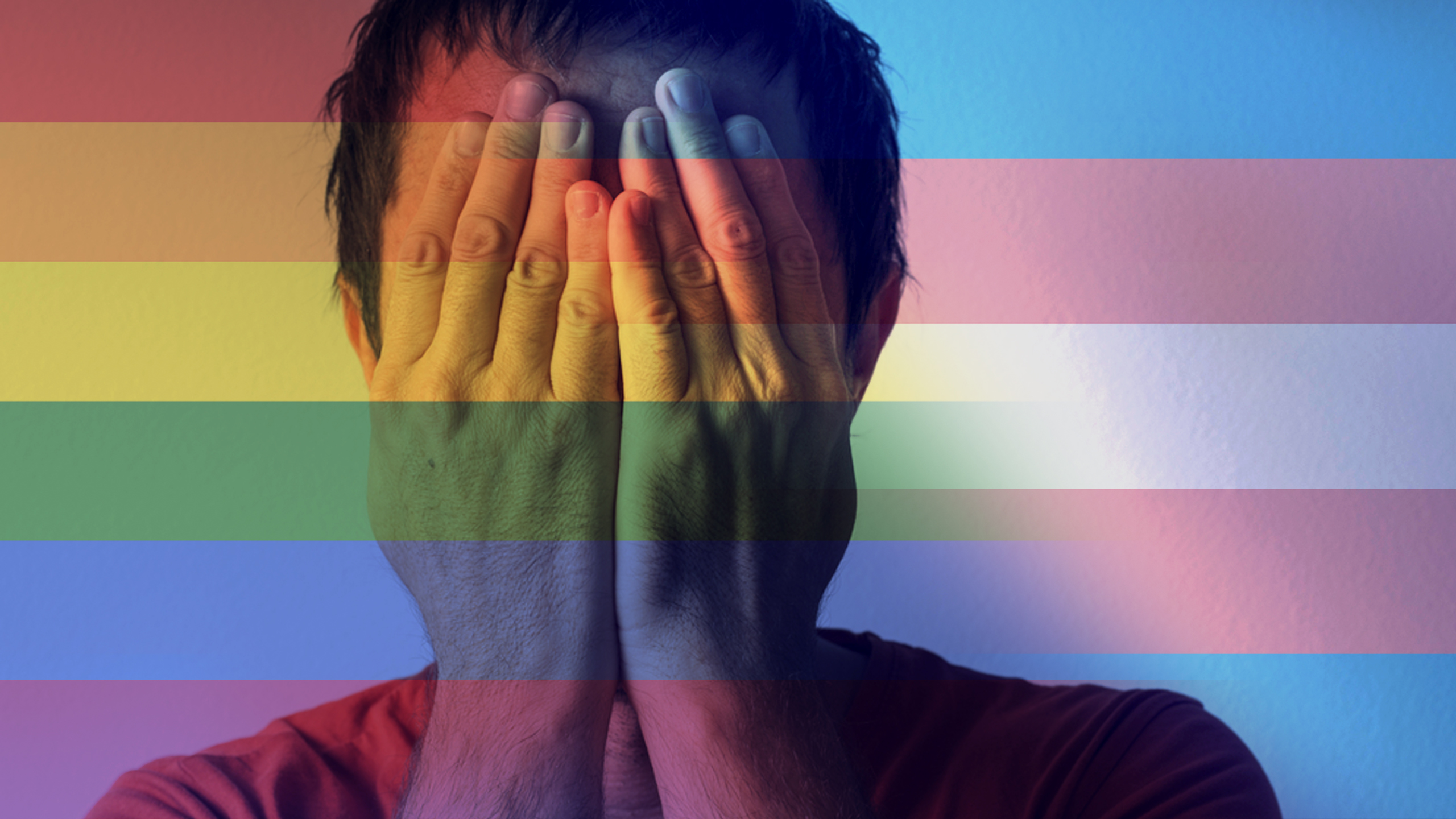
Transgender Rights
Visibility has increased in recent years, but so have
attacks against transgender people, making for a
“traumatic” time, Ms. Keisling said.
“The murder rate is way up, and in general, the rate of
violence against trans people is way up,” she said.
Transgender people are more likely
to experience poverty, discrimination and violence than
gay men, lesbians or bisexuals, who themselves face
higher poverty rates than the general population,
activists said.
Transgender people have been explicitly targeted by 54
state bills similar to North Carolina’s bathroom law.
Two of the state legislations were signed into law.
Dozens of religiously affiliated colleges and
universities in the past 12 months have obtained waivers
from federal civil rights laws that protect transgender
people.
Southern Poverty Law Center
Lavender Law
Human Rights Campaign
National LGBT Bar Association
Lambda Legal
Gay & Lesbian Advocates & Defenders
American Civil Liberties Union
Immigration Equality


Health Care
A trip to the doctor can be perilous for transgender
people, who often face hostility or a general lack of
understanding from health care providers, Ms. Keisling
said.
A study by her group found that 64 people (or 1 percent
of respondents) had experienced physical violence in a
doctor’s office or hospital, she said.
More generally, LGBTQ people are “significantly more
likely” to be uninsured than the population at large,
said Kellan Baker, who studies LGBTQ health issues at
the Center for American Progress.
Advocacy groups have encouraged enrollment in insurance
offered under the Affordable Care Act, which was the
first federal law to prohibit anti-LGBTQ discrimination
in the health care system, said Mr. Baker.
They have also encouraged people to go on pre-exposure
prophylaxis, or PrEP, a prescription drug that provides
high levels of immunity from HIV, Mr. Roybal said
The Centers for Disease Control and Prevention said 57
percent of all Americans living with HIV at the end of
2011 were gay or bisexual men. They accounted for 65
percent of all new infections in 2013. African-Americans
made up 40 percent of those new diagnoses, while whites
accounted for 32 percent, and Latinos for 23 percent.
Mr. Baker said that transgender women also have an
“extremely high prevalence” of HIV infection. Worldwide,
they are 49 times more likely than non-transgender women
to be HIV positive, he said.
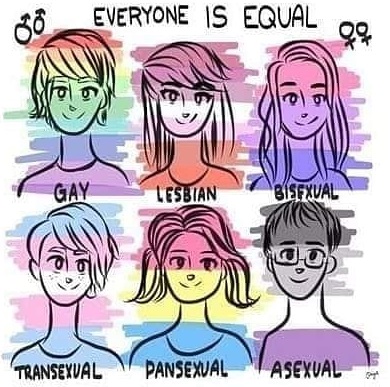
LGBTQ Bar: The
Gay Panic Defense
It Seems Almost Unreal:
LGBTQ People Respond to Supreme Court Ruling
NPR: Supremes Court
Delivers Major Victory to LGBTQ Employees
LGBTQ Rights in the United States
Out
Right International
SPLC: LGBTQ Rights for Students at School
Info: Business
and the Marketplace
Advocate: The Gay and
Trans People Who Took Their Cases to the Supreme Court
LA Times: Supreme Court
Ruling Protects LGBTQ Rights
ABC News: Supreme Court
Bans LGBTQ Employment Discrimination
How
Discrimination Affects the LGBTQ Population
Mapping LGBTQ Equality in America
Washington Post: State Efforts to Limit LGBTQ Rights
Sexual Harassment Explained
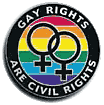
Immigration and Criminal Justice Reform
Undocumented LGBTQ immigrants face an increased risk of
violence and harassment in immigration detention centers
and have sometimes not been provided with appropriate
medical care, such as hormone treatments or HIV
medications, especially when they are transgender.
A 2013 study by the University of California at Los
Angeles’s School of Law estimated there were 900,000
LGBTQ immigrants in the United States, with about
267,000 of them undocumented.
Ms. Keisling said that Immigration and Customs
Enforcement “has never figured out how to safely house
transgender people, especially trans women.”
“For the longest time what they did was just put
everybody in solitary confinement” out of fear that
transgender detainees would either be the victims or
perpetrators of violence, she said.
That practice has decreased but not ended. Immigration
authorities have started using designated LGBTQ units,
but they are often far from a detainee’s family or
lawyer, Ms. Keisling said
Mr. Roybal said LGBTQ prison inmates face many of the
same challenges as LGBTQ people held in immigration
detention centers: an elevated risk of violence,
harassment and solitary confinement.
“It isn’t really protecting them, it is isolating them,”
he said of solitary confinement. “It’s basically the
system not wanting to do anything to change its
policies.”
[Source: Liam Stack, New
York Times, June 2016]
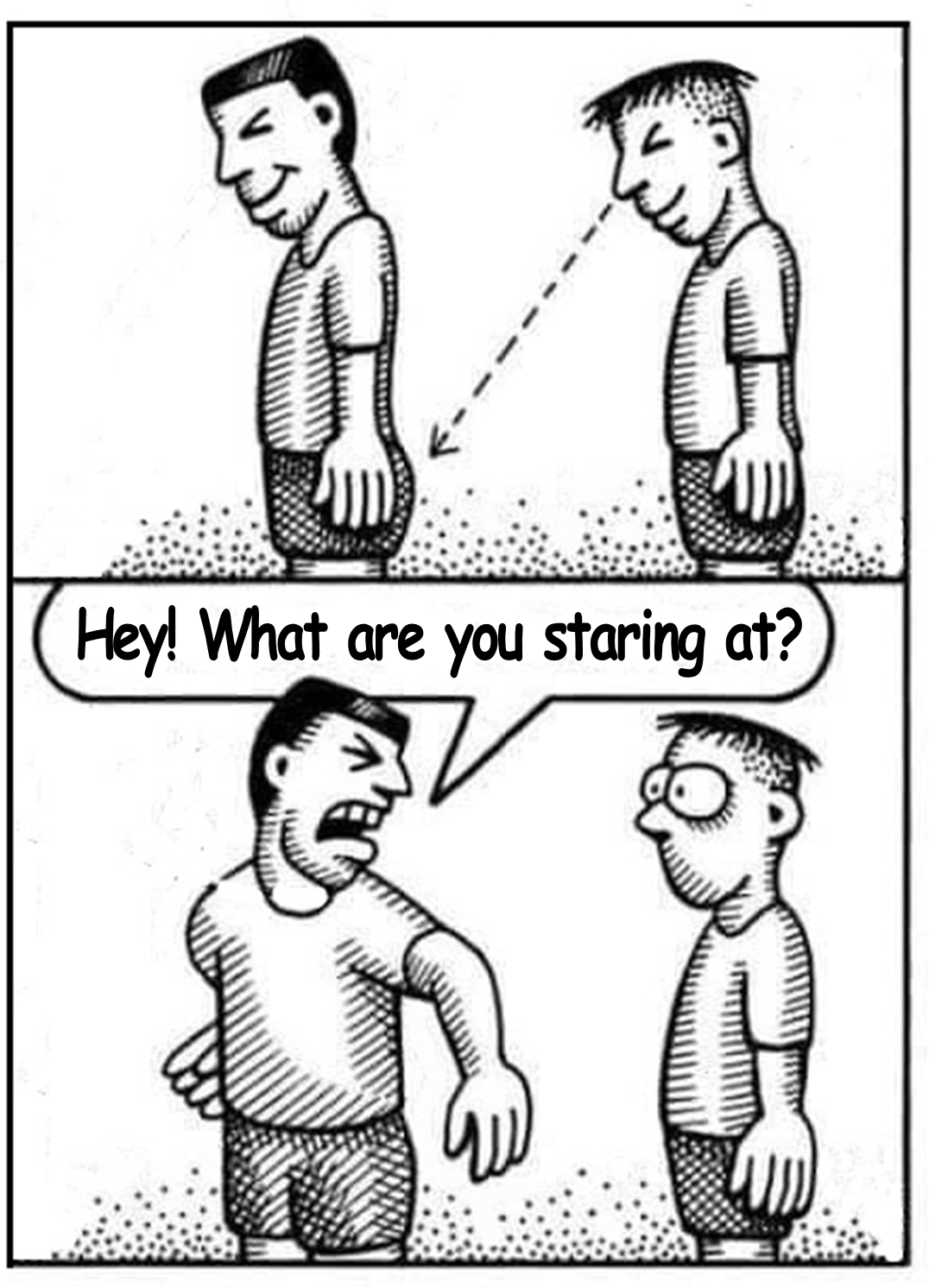
The
Gay/Trans Panic Defense
The LGBTQ
"panic" defense (gay panic defense, gay/trans panic
defense, homosexual panic defense) is a legal strategy
in which a defendant claims they acted in a state of
violent, temporary insanity, committing assault or
murder, because of unwanted same-sex sexual advances. A
defendant may allege to have found the same-sex sexual
advances so offensive or frightening that they were
provoked into reacting, were acting in self-defense,
were of diminished capacity, or were temporarily insane,
and that this circumstance is exculpatory or mitigating.
The LGBTQ
“panic” defense has also been explained as a legal
tactic that asks a jury to find that a victim’s sexual
orientation or gender identity/expression is to blame
for a defendant’s violent reaction, including murder. It
is not a free-standing defense to criminal liability,
but rather a legal tactic used to bolster other
defenses. When a perpetrator uses an LGBTQ “panic”
defense, they are claiming that a victim’s sexual
orientation or gender identity not only explains (but
excuses) a loss of self-control and the subsequent
assault. By fully or partially acquitting the
perpetrators of crimes against LGBTQ victims, this
defense implies that LGBTQ lives are worth less than
others.
One of the most recognized cases that employed the LGBTQ
“panic” defense was that of Matthew Shepard. In 1998,
Matthew Shepard, a 21-year-old college student, was
beaten to death by two men. The men attempted to use the
LGBTQ “panic” defense to excuse their actions. Despite
widespread public protest, the defense is still being
used today.
Michigan Outlaws
Gay and Trans Panic Defense in
Criminal Trials
Explanation: Gay/Trans Panic Defense
American Bar Association: The Gay/Trans Panic Defense
LGBTQ Bar: The
Gay Panic Defense
Florida Dems File Bill Ending Gay and
Trans Panic Defense
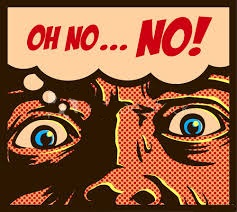
Traditionally, the LGBTQ “panic” defense has been used
in three ways to mitigate a case of murder to
manslaughter or justified homicide.
Defense of insanity
or diminished capacity
The
defendant alleges that a sexual
proposition by the victim – due
to their sexual orientation or
gender identity – triggered a
nervous breakdown in the
defendant,
causing an LGBTQ “panic.” This
defense is based on an outdated
psychological term, “gay panic
disorder”, which was debunked by
the American Psychiatric
Association and removed from the
DSM in 1973. Sadly, while the
medical field has evolved with
our increasingly just society,
the legal field has yet to catch
up.
Defense of provocation
The
defense of provocation allows a defendant to argue that
the victim’s proposition, sometimes termed a
“non-violent sexual advance,” was sufficiently
“provocative” to induce the defendant to kill the
victim. Defendants claiming a “provocative” advance
stigmatize behavior which, on its own, is not illegal or
harmful, but is only considered “provocative” when it
comes from an LGBTQ individual.
Defense of self-defense
Defendants
claim they believed that the victim, because of their
sexual orientation or gender identity/expression, was
about to cause the defendant serious bodily harm. This
defense is offensive and harmful because it argues that
a person’s gender or sexual identity makes them more of
a threat to safety. In addition, LGBTQ “panic” is often
employed to justify violence when the victim’s behavior
falls short of the serious bodily harm standard, or the
defendant used a greater amount of force than reasonably
necessary to avoid danger, such as using weapons when
their attacker was unarmed.
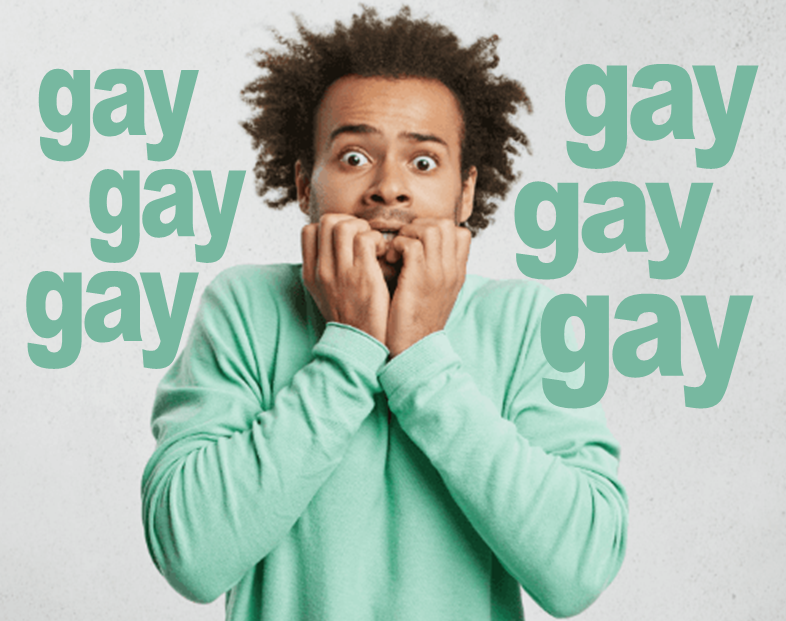
Explanation: Gay/Trans Panic Defense
American Bar Association: The Gay/Trans Panic Defense
LGBTQ Bar: The
Gay Panic Defense
Florida Dems File Bill Ending Gay and
Trans Panic Defense
Michigan Outlaws
Gay and Trans Panic Defense in
Criminal Trials
Some courts and legislatures have begun to curb the use
of the LGBTQ “panic” defense, but many states are
lagging behind. In order to ensure that the LGBTQ
“panic” defense is not seen as a valid excuse, courts
should instruct juries to make decisions without bias or
prejudice. Jury instructions, however, are often not
enough to ensure that people are not swayed by
discriminatory appeals. Legislatures should specify that
neither non-violent sexual advances nor the discovery of
a person’s gender identity can be used as an adequate
provocation for murder. Finally, local governments need
to educate courts, prosecutors, defense counsel, and the
public about the devastating individual and legal
consequences of the LGBTQ “panic” defense.
Following the ABA’s resolution in 2013, The LGBTQ Bar is
continuing to work with concerned lawmakers at the state
level to help ban the use of this tactic in courtrooms
across the country.

The LGBTQ
“panic” defense has been banned in...
|
California, 2014
Illinois, 2017
Rhode Island, 2018
Nevada, 2019
Connecticut, 2019
Maine, 2019
Hawaii, 2019 |
New York, 2019
New Jersey, 2020
Washington, 2020
Colorado, 2020
District of Columbia, 2020
Michigan 2024 |
Legislation against the
LGBTQ “panic” defense has been introduced, but not yet
passed, in...
|
Minnesota, 2018
Pennsylvania, 2019 and 2020
Texas, 2019
Massachusetts, 2019
Wisconsin, 2019
Iowa, 2020 |
Virginia, 2021
Maryland, 2021
Nebraska, 2021
Florida, 2021
Oregon, 2021
New Mexico, 2021 |
[Source: LGBTQ Bar]
Equaldex: LGBTQ
Rights Across the World
The Case for Optimism About LGBTQ Rights
in the United States
Boston Globe: No God-Given Right to Discriminate Against
LGBTQ People
ACLU: End the Use of Religion to Discriminate
Wedding Photographer Loses Case Against
NY's Antidiscrimination Laws
Lambda Legal: The Notion of Religious Exemption
HRW: Religious Exemption and Discrimination Against
LGBTQ People
Natl LGBTQ Task Force: LGBTQ Discrimination Masquerading
as Religious Freedom
LGBTQ Rights in the United States
Out
Right International
LGBTQ Nation: Supreme Court Rules in Favor of LGBTQ
Rights in Landmark Decision
Outlawed: Anti-LGBTQ Laws Around the World
SPLC: LGBTQ Rights for Students at School
LGBTQ Rights: 50 Years After Stonewall
Info:
Career
and Workplace Issues

HOME
QUEER CAFE
│ LGBTQ Information Network │ Established 2017
|